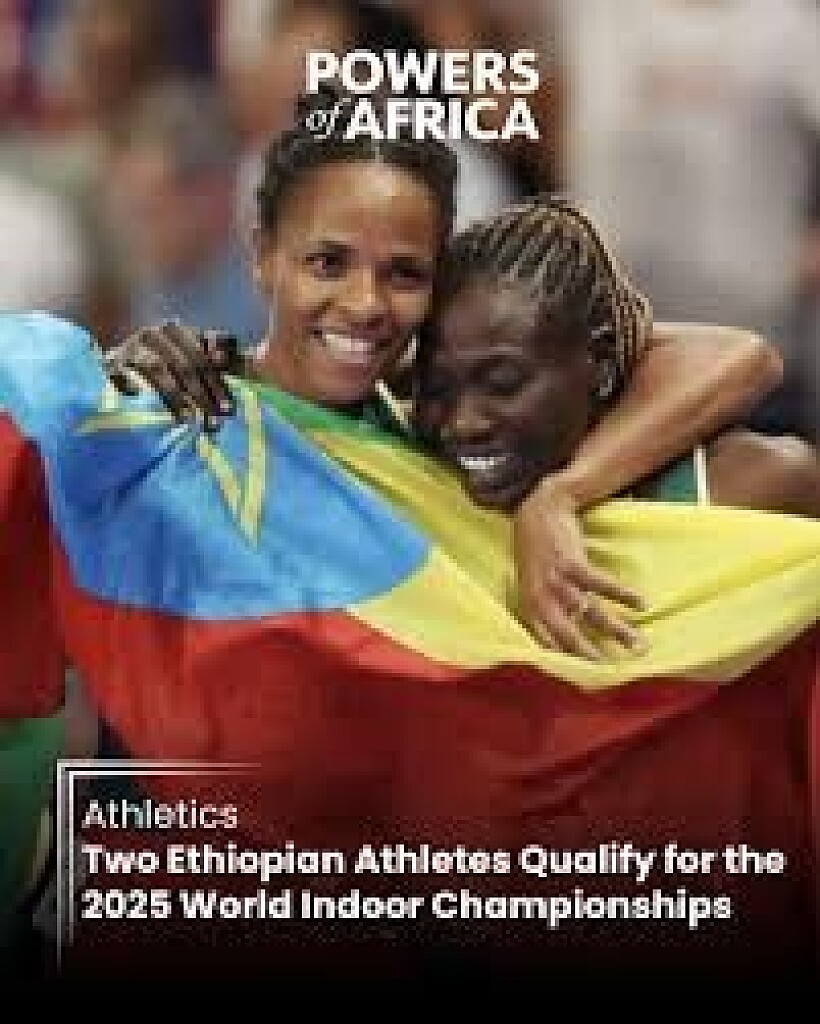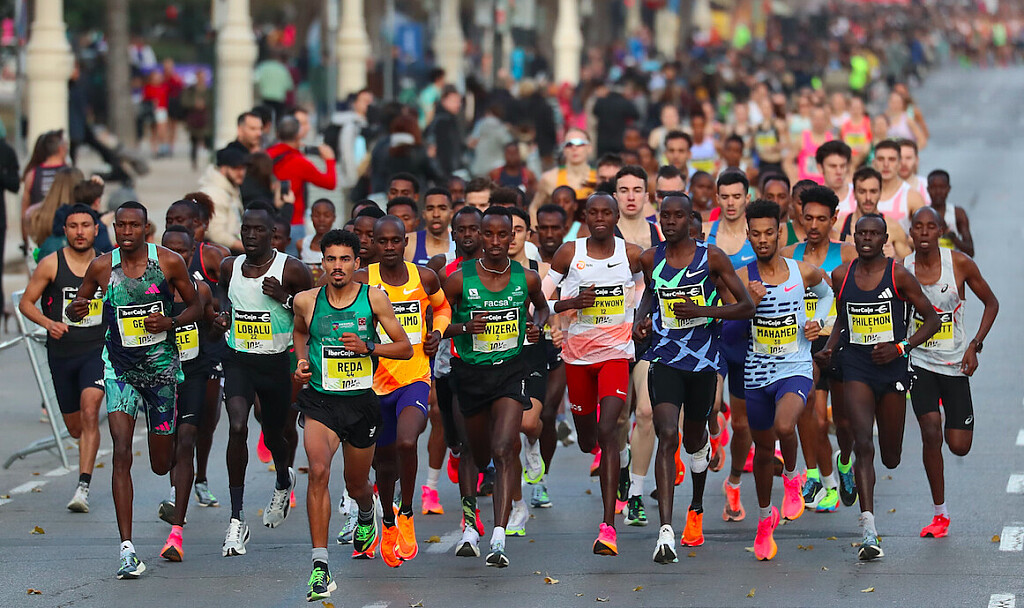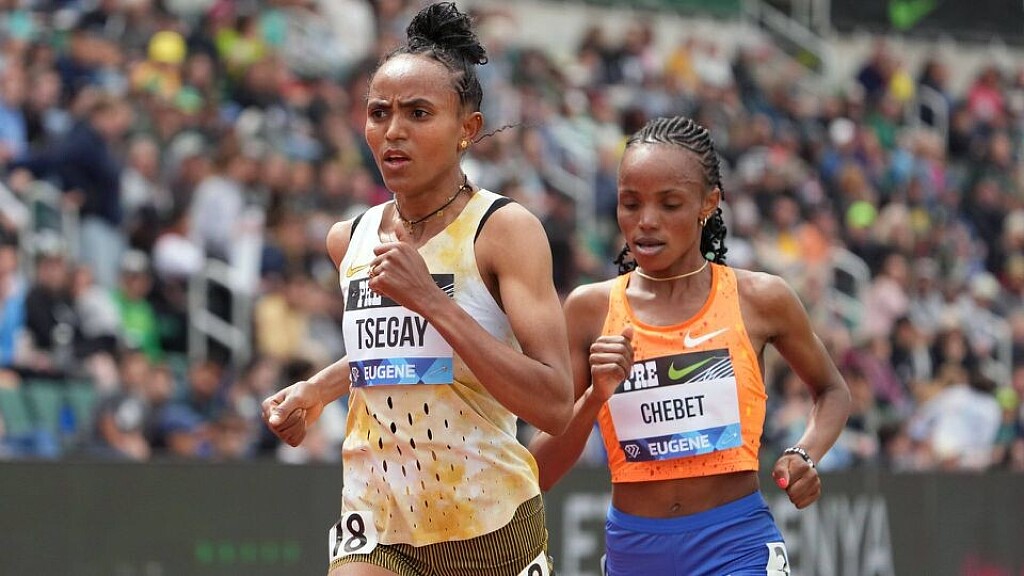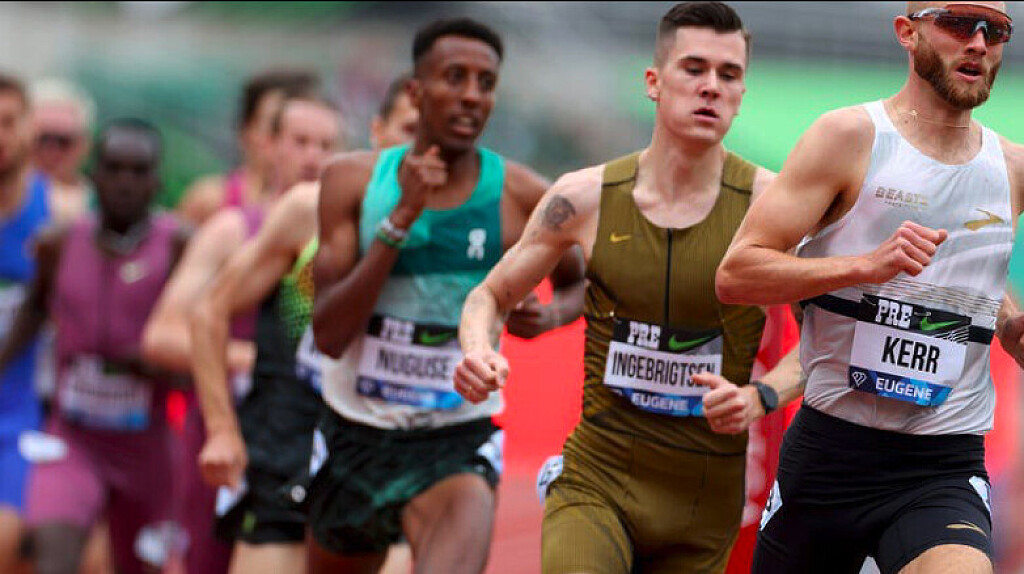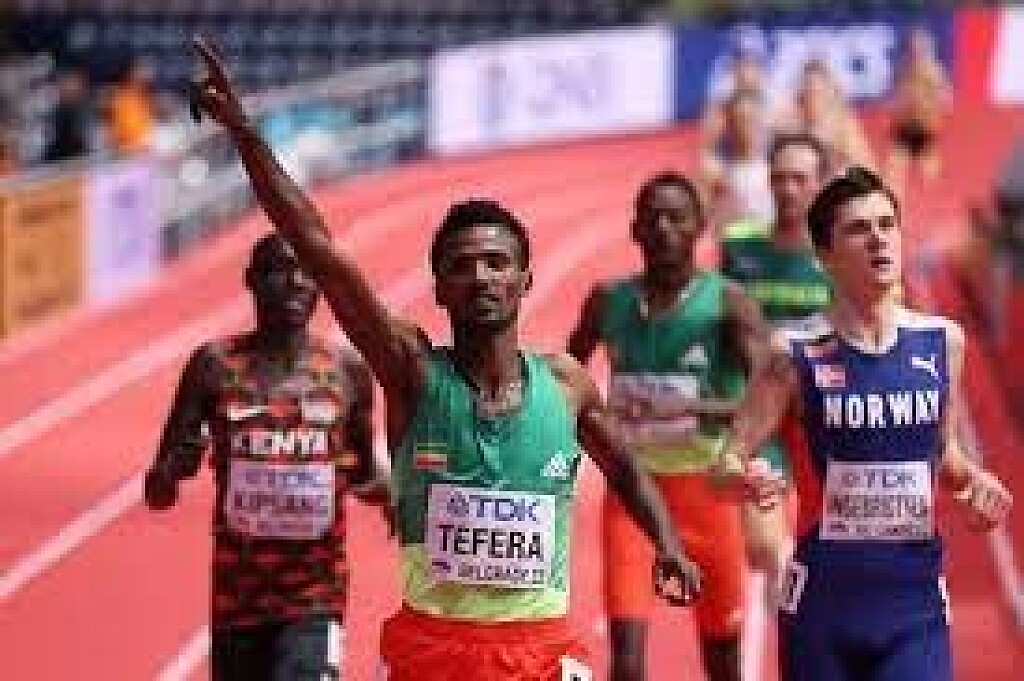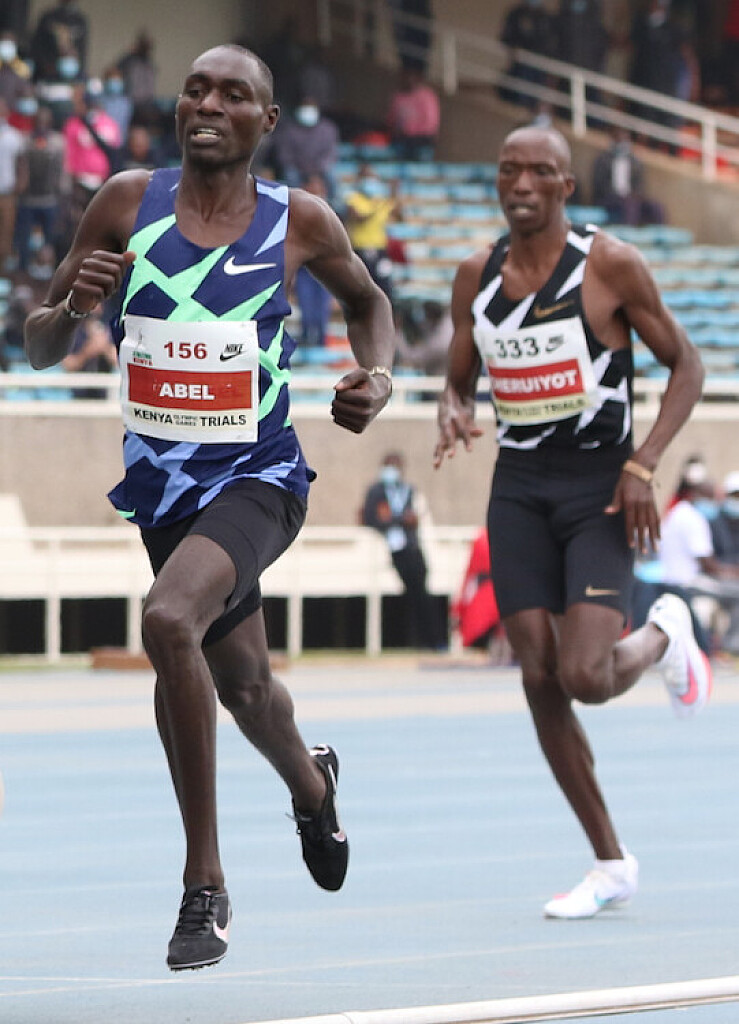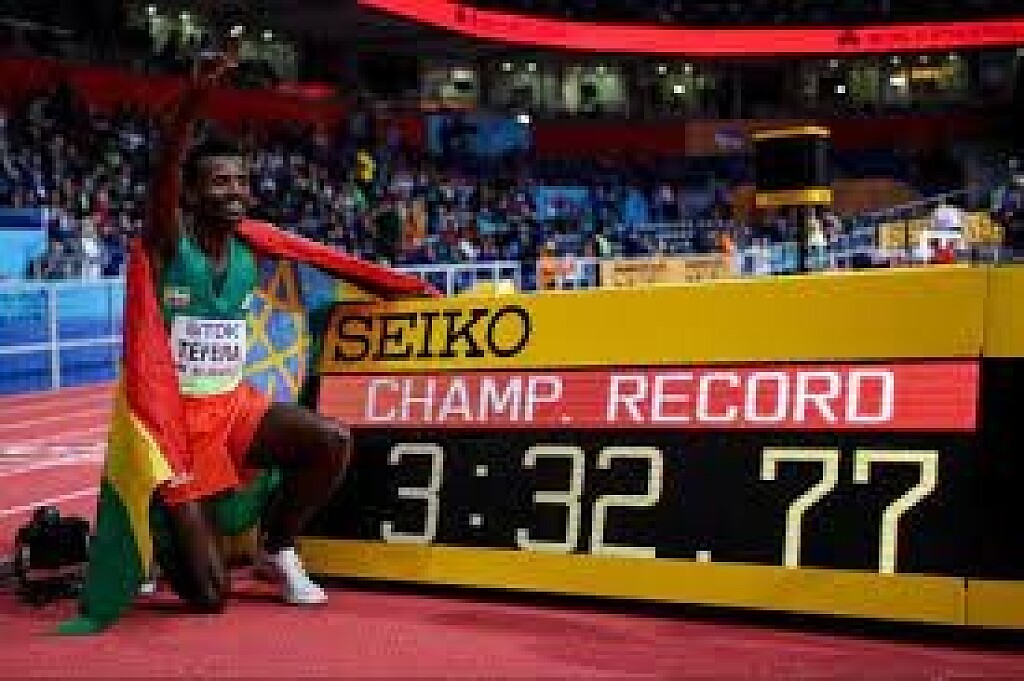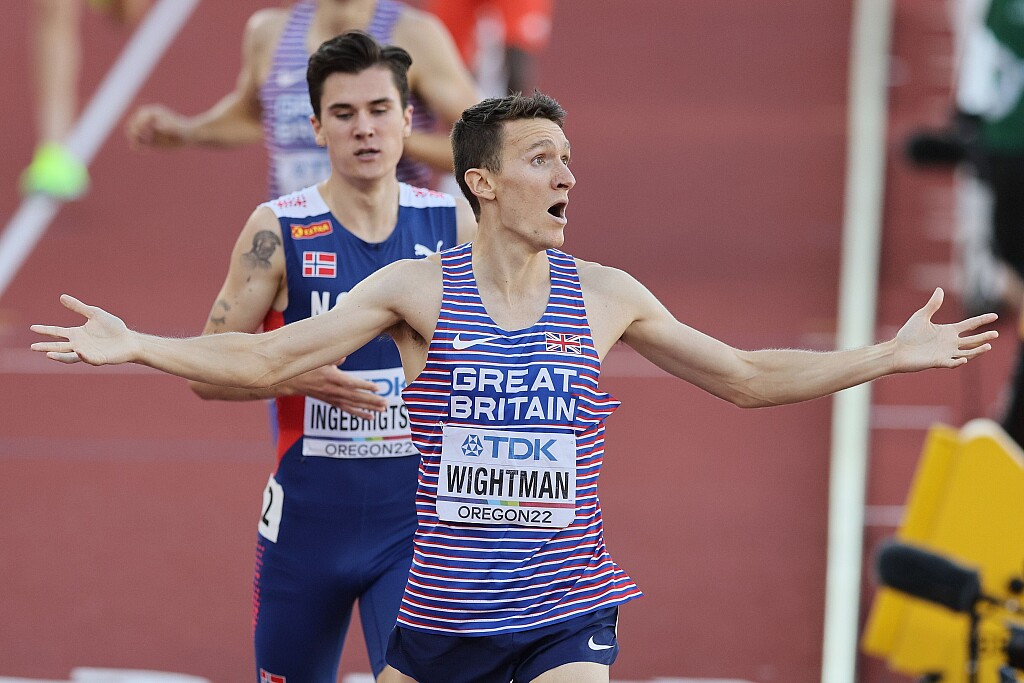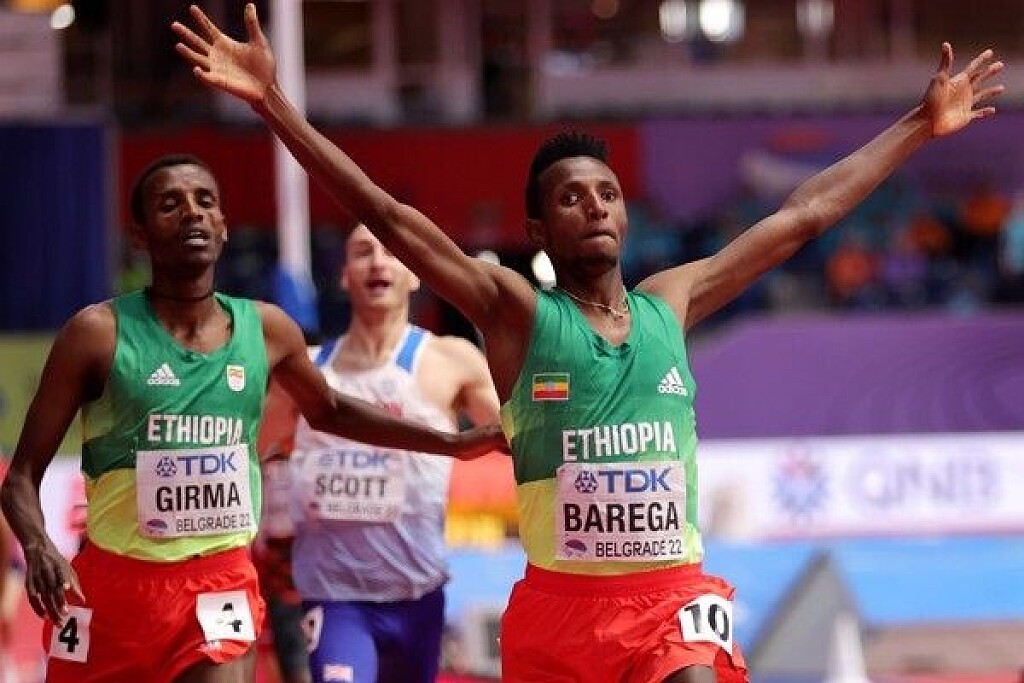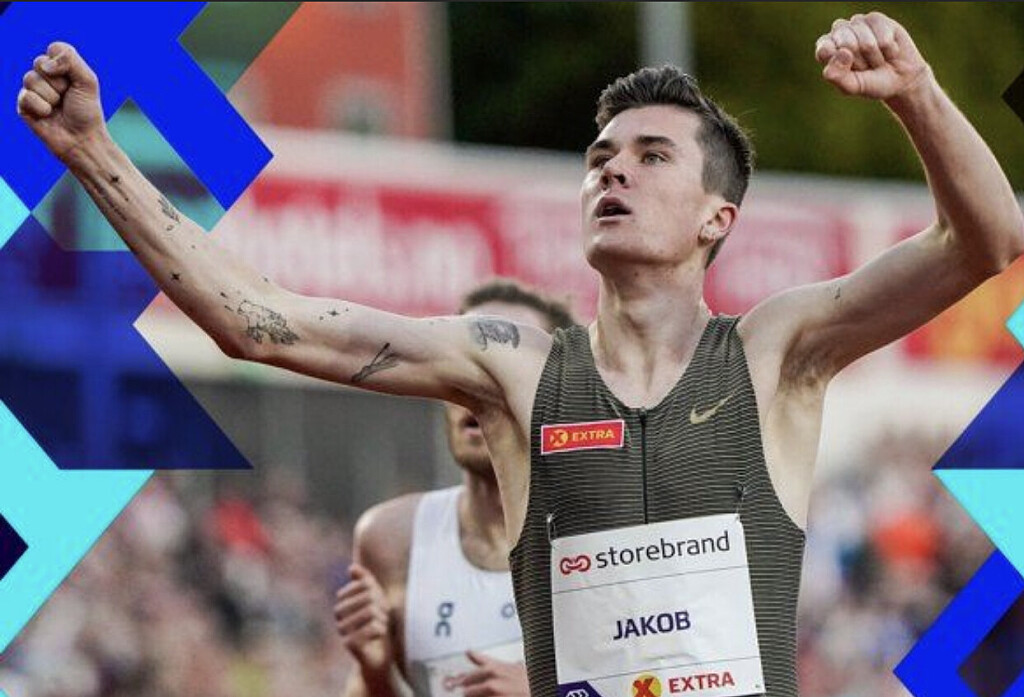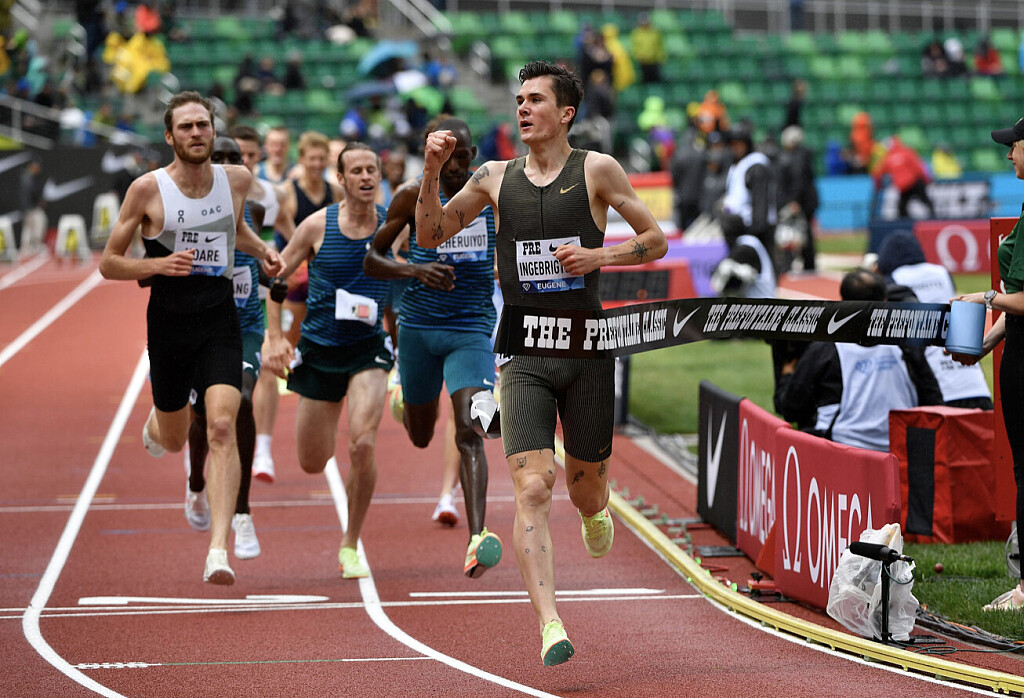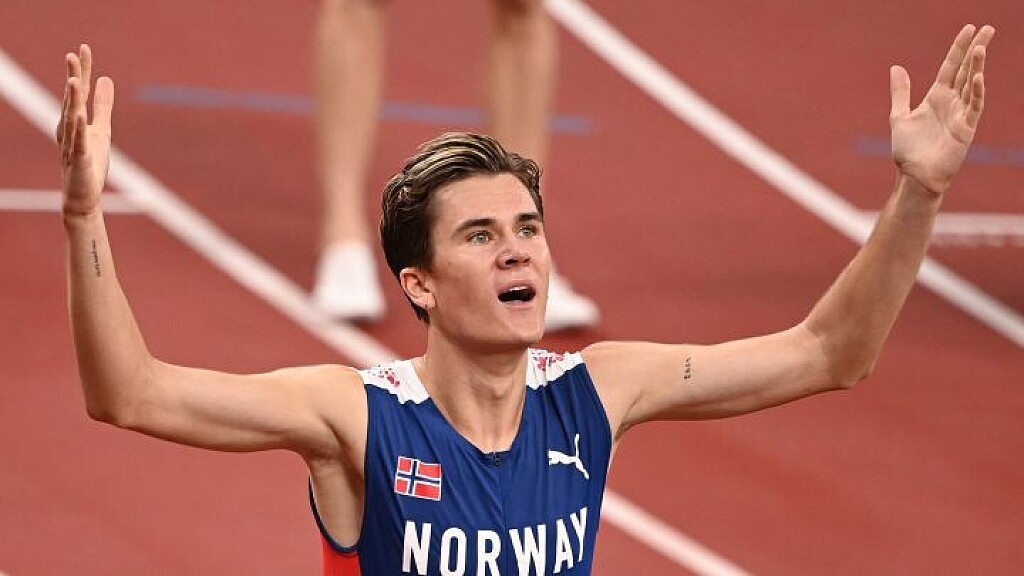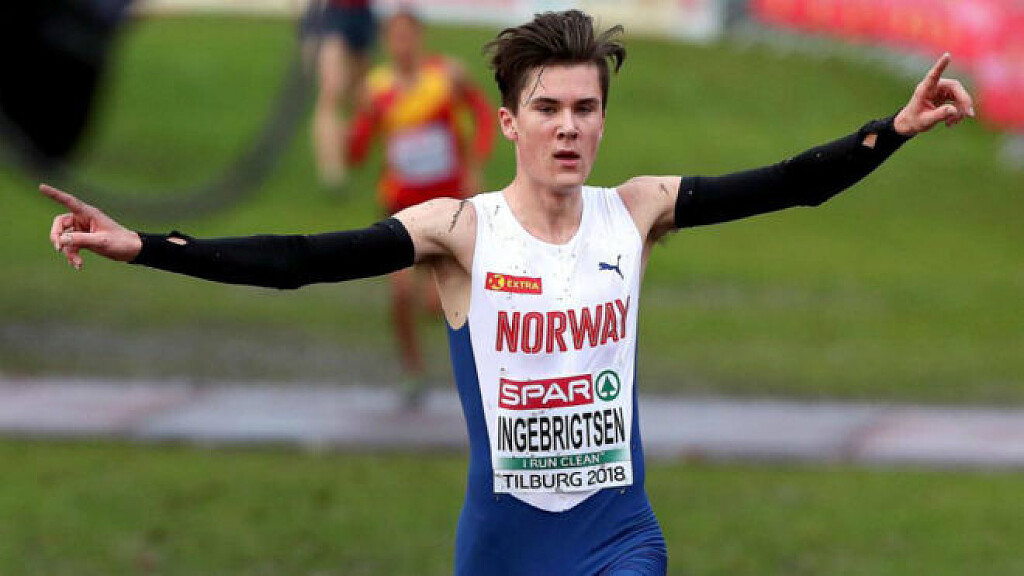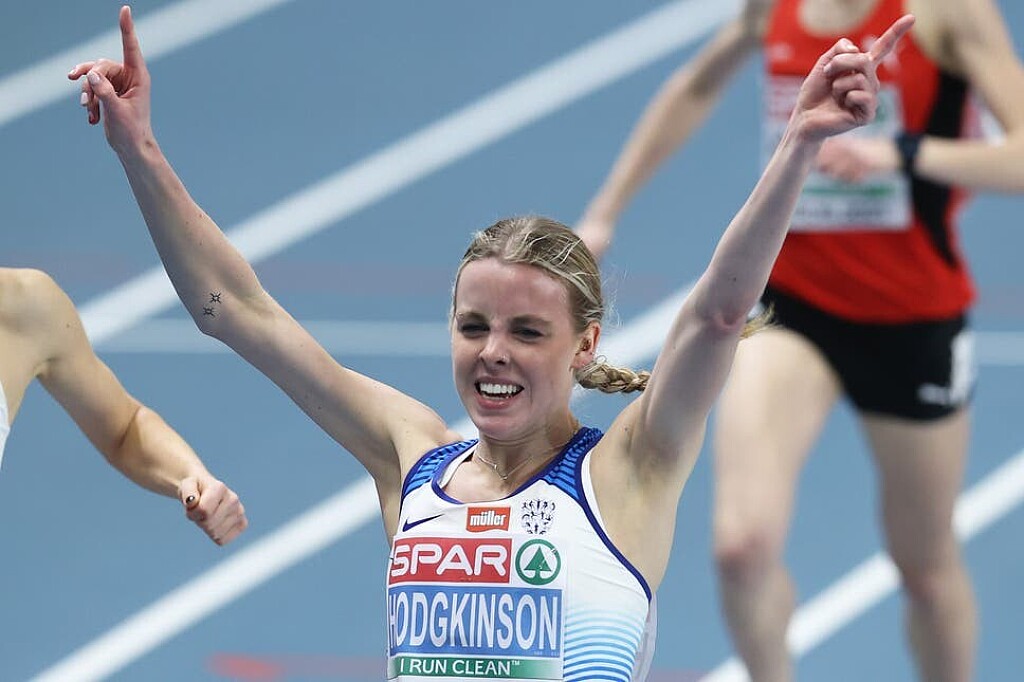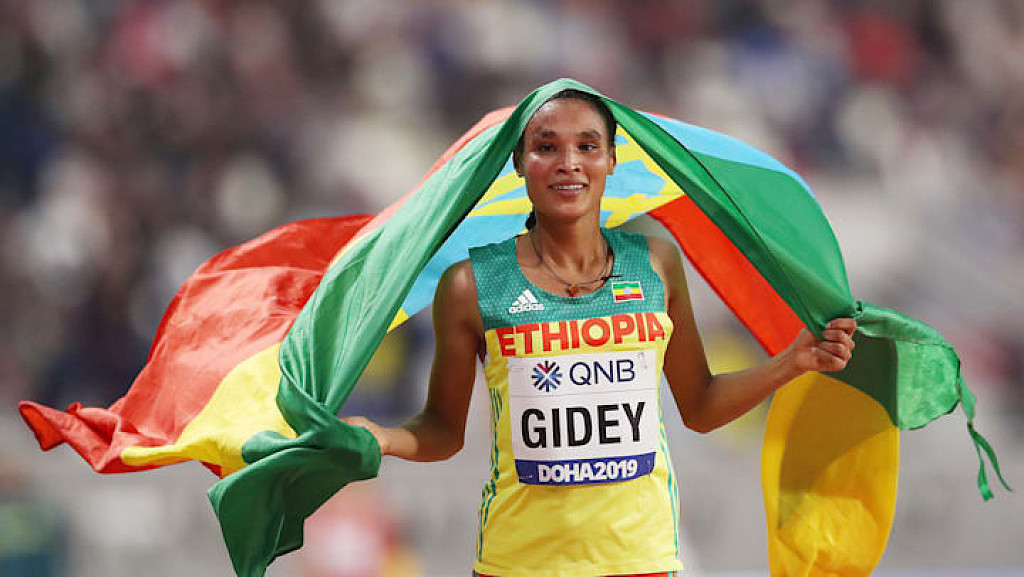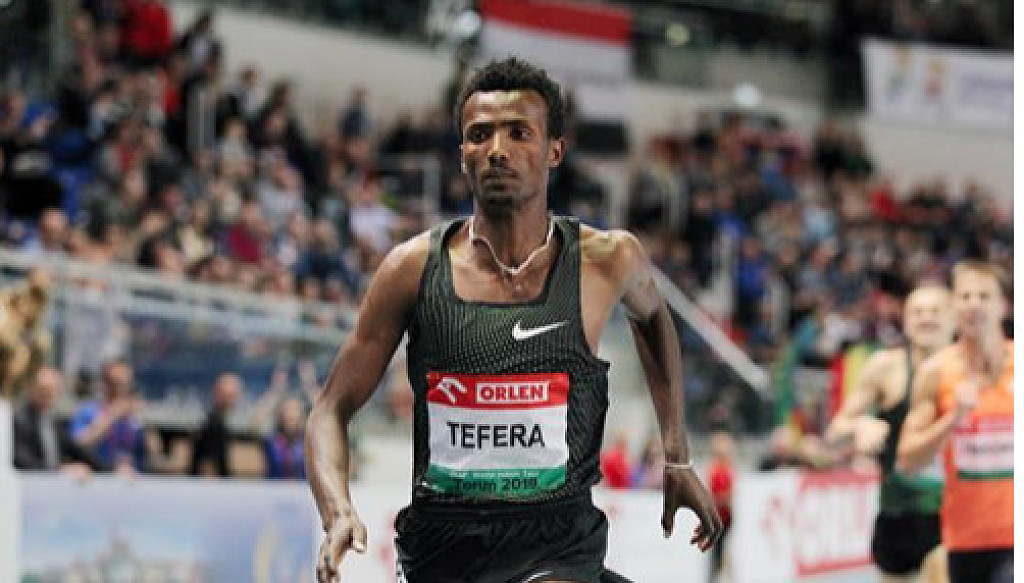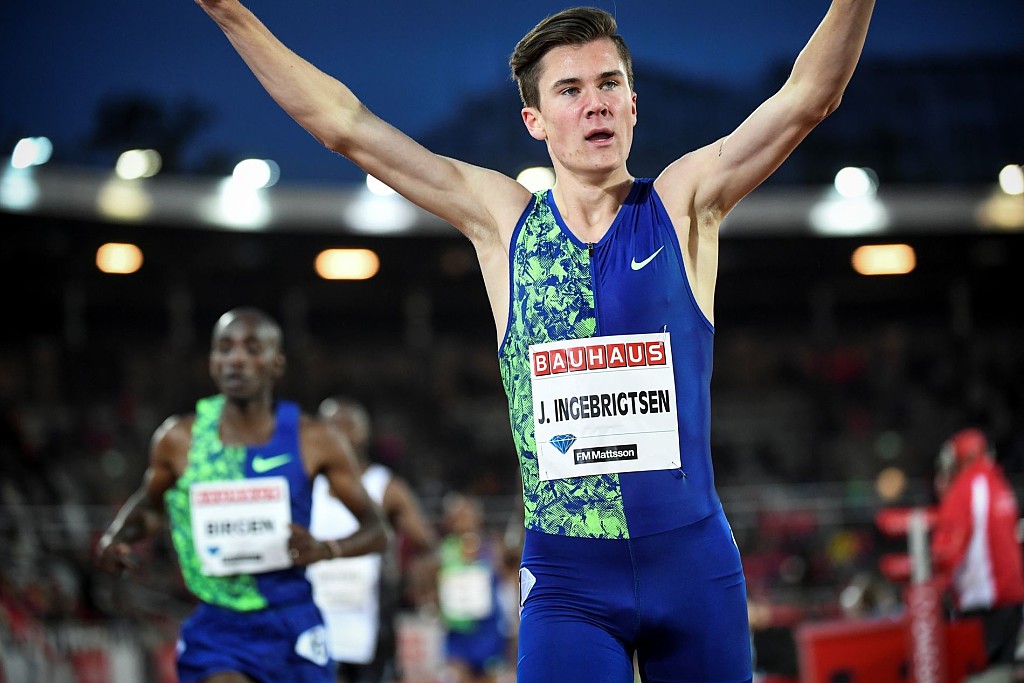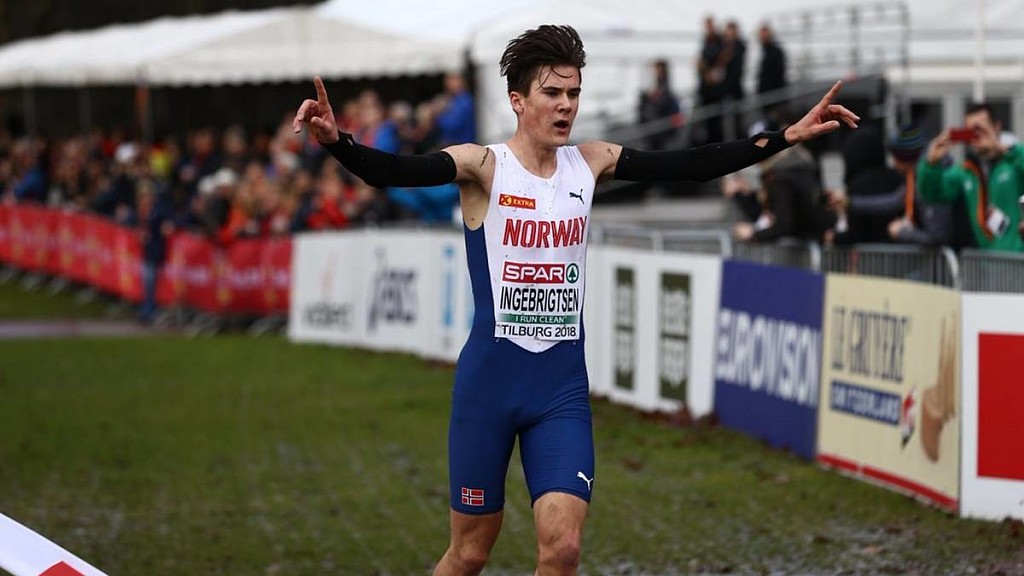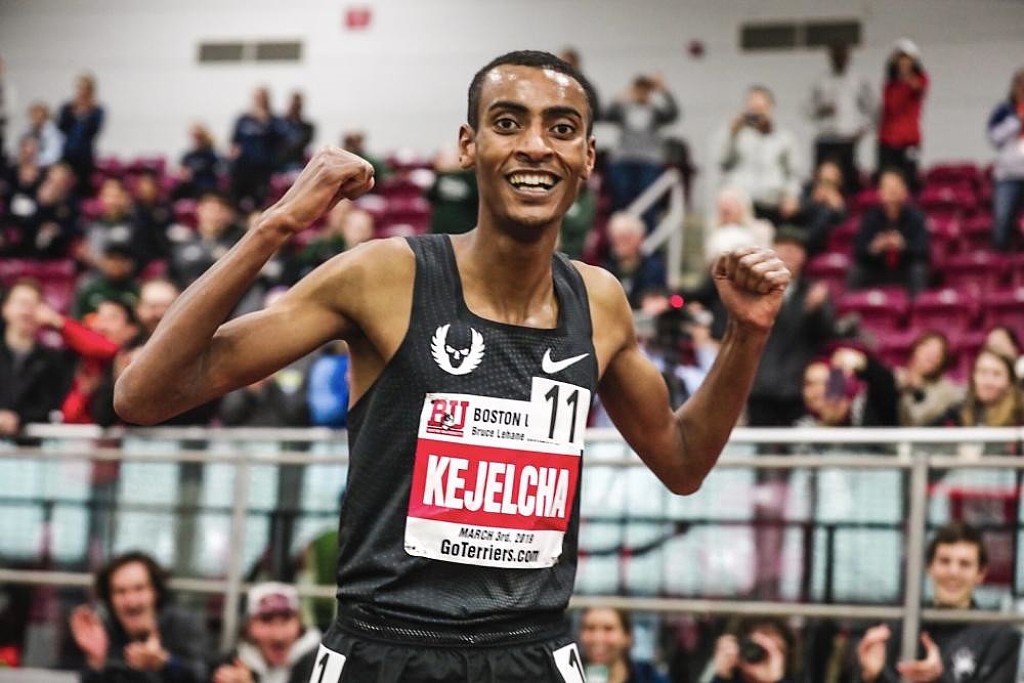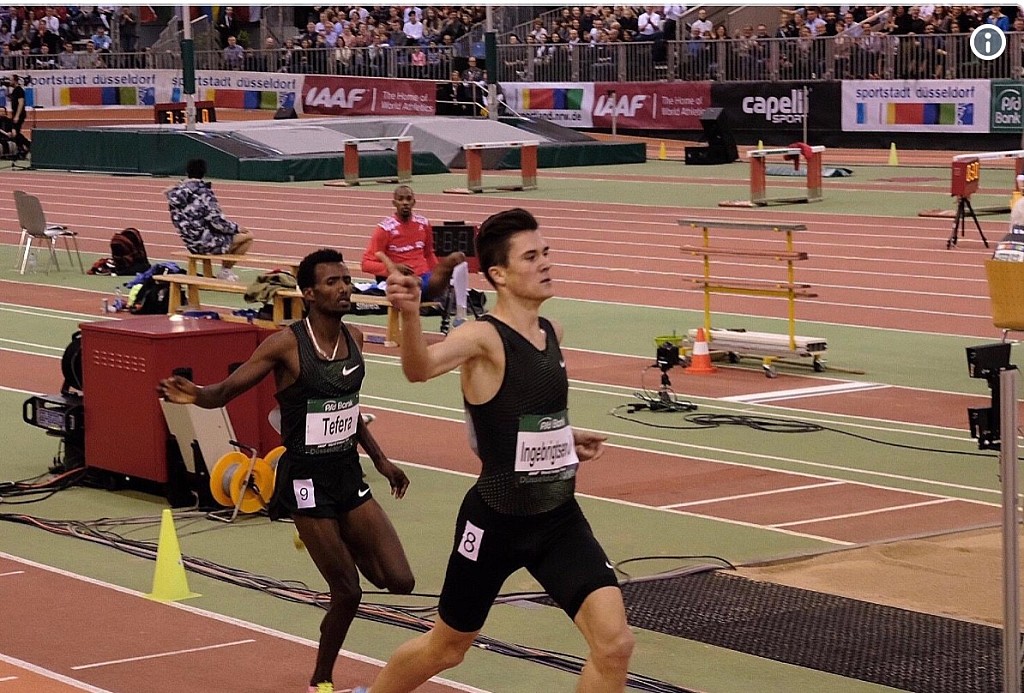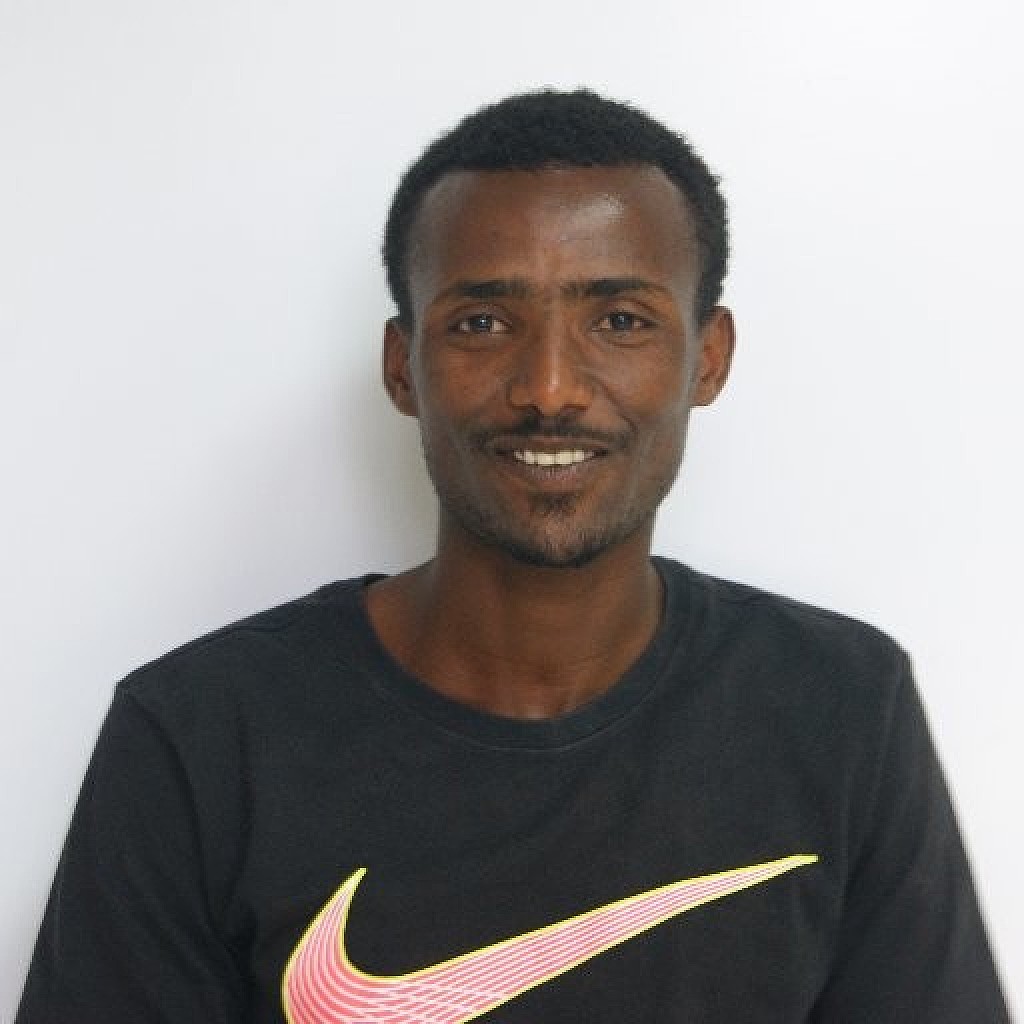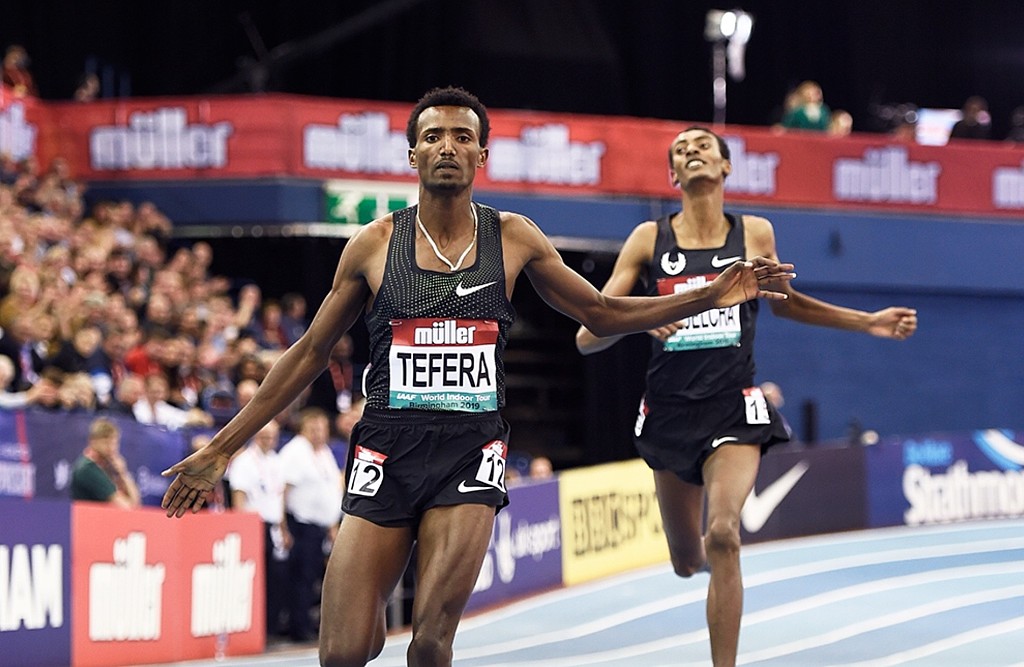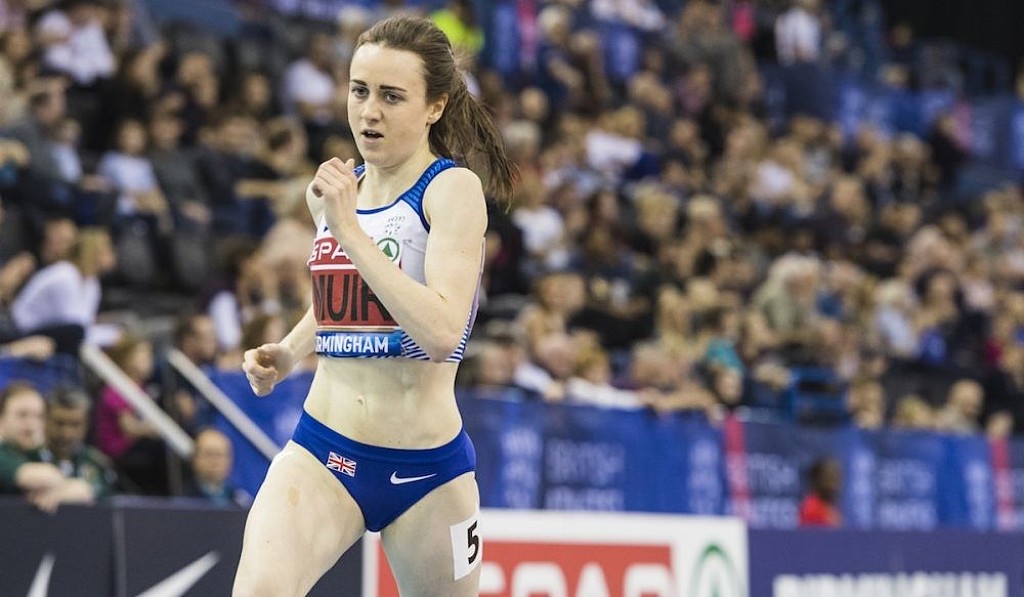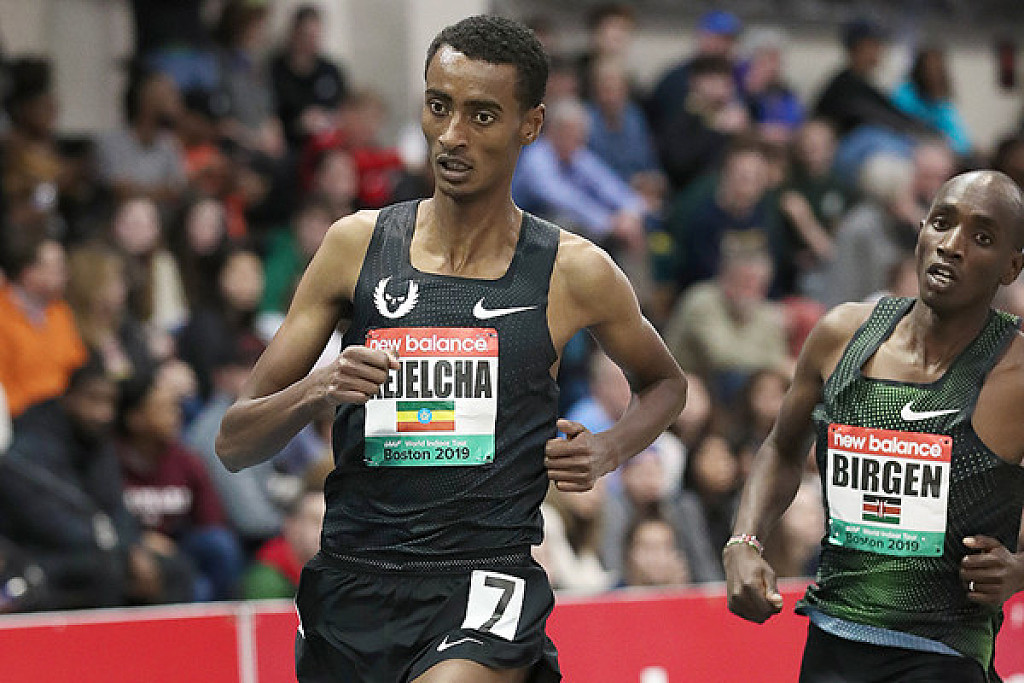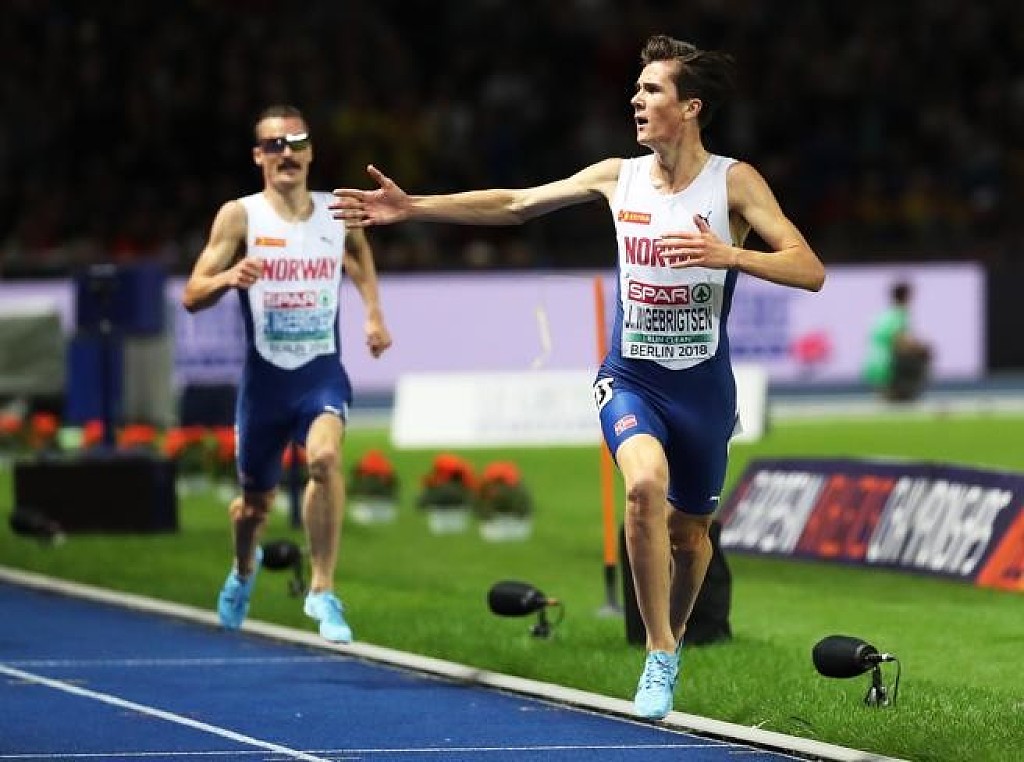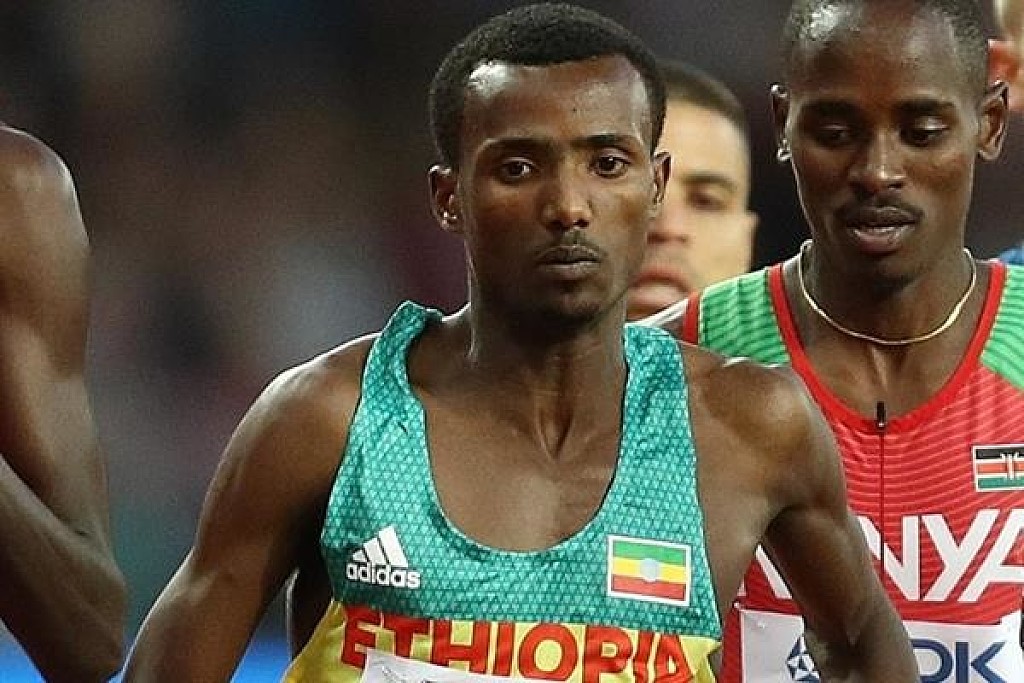Running News Daily
Running News Daily is edited by Bob Anderson. Send your news items to bob@mybestruns.com Advertising opportunities available. Train the Kenyan Way at KATA Kenya and Portugal owned and operated by Bob Anderson. Be sure to catch our movie A Long Run the movie KATA Running Camps and KATA Potato Farms - 31 now open in Kenya! https://kata.ke/
Index to Daily Posts · Sign Up For Updates · Run The World Feed
Articles tagged #Samuel Tefera
Today's Running News
Ethiopia Assembles Stellar Squad for World Athletics Indoor Championships Nanjing 2025
The Ethiopian Athletics Federation has unveiled a formidable lineup for the upcoming World Athletics Indoor Championships, set to take place from March 21 to 23, 2025, at the Nanjing Sports Training Centre’s Indoor Athletics Arena in Nanjing, China.
Highlighted Athletes:
• Tsige Duguma: The reigning 800m indoor champion, Duguma clinched gold at the 2024 World Athletics Indoor Championships in Glasgow. She further showcased her prowess by securing a silver medal in the 800m at the 2024 Paris Olympics with a personal best of 1:57.15.
• Freweyni Hailu: Hailu captured the 1500m title at the 2024 World Indoor Championships. Her consistent performances have solidified her status as one of Ethiopia’s premier middle-distance runners.
• Gudaf Tsegay: The reigning World 10,000m champion, Tsegay has been selected for the 1500m event in Nanjing. She recently recorded a world-leading time of 3:53.92 in Torun, marking the second-fastest indoor 1500m performance in history, trailing only her own world indoor record.
• Samuel Tefera: A two-time world indoor 1500m champion, Tefera aims to defend his title and further cement his legacy in middle-distance running.
• Berihu Aregawi: The Olympic 10,000m silver medallist is set to compete in the 3000m event, bringing his endurance and tactical acumen to the indoor track.
Wild Card Entries:
Due to their outstanding performances in the World Athletics Indoor Tour, both Tsige Duguma and Freweyni Hailu have secured wild card entries for the championships. These wild cards permit Ethiopia to field three athletes in specific disciplines, enhancing the team’s competitive depth.
Event Overview:
The World Athletics Indoor Championships serve as a global stage for athletes to compete at the highest level in indoor track and field events. Originally slated for 2020, the Nanjing championships faced postponements due to the COVID-19 pandemic but are now set to proceed in March 2025.
Ethiopia’s delegation reflects the nation’s rich tradition in middle and long-distance running. With a blend of defending champions and rising stars, the team is poised to make a significant impact at the championships.
Login to leave a comment
Nearly 100 elite athletes of 25 nationalities will compete for victory at the 10K Valencia
On January 12, thousands of runners will fly through the fastest 10K course in the world. Dominic Lobalu, Isaac Kimeli and Andreas Almgren arrive in Valencia with the goal of breaking the European 10K record.
The 10K Valencia Ibercaja by Kiprun is finalizing the details to offer again a great show in what will be its 17th edition this coming January 12. The race, which closed its registration last December 22 after exhausting the available numbers, will feature a cast of elite athletes of up to 25 nationalities.
According to José Enrique Muñoz Acuña, Coordinator of Elite athletes and sports director of the race, the goal this year "is to continue the level of sporting demand that has the 10K Valencia as the best 10K in Spain and holder of world records for both men and women". "This January 12 we will once again experience an event of the highest level, in which -if the conditions respect us- athletes can meet their goals and we can once again see men under 27 minutes and women under 30 minutes," he added.
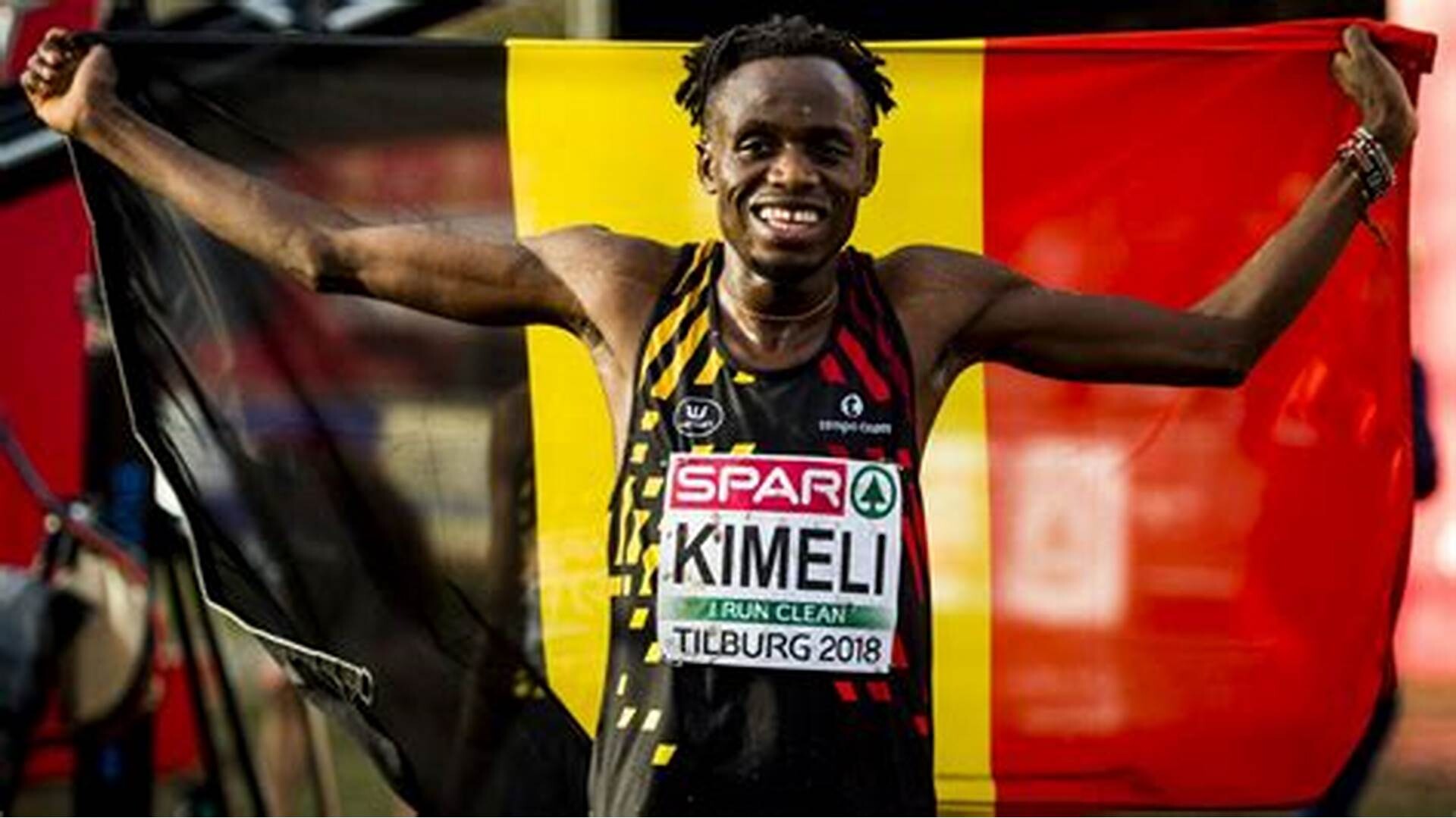
As usual in the 10K Valencia, in men "we find a list that stands out for the good level of European athletes, who come with the aim of breaking the European record", which is currently held by Etienne Daguinos (27:04, Lille 2024). For this "there are three clear favorites: Dominic Lobalu (Switzerland), Isaac Kimeli (Belgium) and Andreas Almgren (Sweden), who will have a hare to launch the race to go under 27 minutes."
As for the African armada, several athletes stand out, such as the Ethiopians Telahun Bekele, Getnet Wale and the debutant in the distance Samuel Tefera, double world indoor 1,500ml champion. In addition to many other athletes who can opt for victory, such as Kenyans Daniel Kinyanjui, Vincent Langat or Meshack Lelgut, "In total, we have 32 men with records under28 minutes".
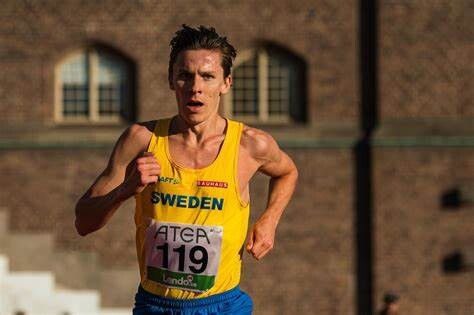
As for the Spanish representation, several names stand out: Abdessamad Oukhelfen, current national record holder of the distance with 27:44 made last January on this circuit, Daniel Arce, who comes from running very fast in León, Juan A. Pérez Moreno, Víctor Ruiz and Aarón Las Heras. It is worth mentioning the Uruguayan athlete living in Spain, Santiago Catrofe, who comes to Valencia with the intention of improving the South American AR, which is currently held by the Argentinean Antonio Silio (27:51, 1990).
Women, going all out
In the women's field, three clear favorites stand out: Fotyen Tesfay (Ethiopia), Christine Chesiro (Kenya) and the young and talented Ethiopian athlete Asayech Ayichew, who won the Great Ethiopian Run a few weeks ago. "In addition to them we have to add a great cast of African athletes. They all come to Valencia to improve their records".
In European terms, several athletes stand out, such as Slovenia's Klara Lukan, France's Mekdes Woldu and England's Abbie Donnelly, all of them looking to break their current records.
In the Spanish field, we have two athletes who arrive in a similar form as Alicia Berzosa and Laura Priego, the clear favorites to win in the Spanish category without forgetting the athlete of the Serrano Athletics Club, Maria Jose Perez.
It is worth remembering that the 10K Valencia, which achieved the World Record in men in 2020 (26:24), managed to break all forecasts in the last edition when the athlete Agnes Jebet beat the 10K world record with a 28:46. On a national level, Abdessamad Oukhelfen won the Spanish men's 10K record with a time of 27:44.
Login to leave a comment
10k Valencia Trinidad Alfonso
Around the corner we have one more edition of the 10K Valencia Ibercaja, organized one more year by the C. 10K VALENCIA Athletics premiering the running season in Valencia. It is a massive urban race with more than 3,000 registered annually of 10 kilometers, where the maximum duration of the test will be 1 hour 40 minutes (100 minutes). The...
more...Gudaf Tsegay, Lamecha Girma head Ethiopia's 43-athlete squad to battle Kenya in Paris Olympics
In the 2021 Tokyo Olympics, Kenya bested Ethiopia as the top African nation, finishing 19th overall with 10 athletics medals.
World record-holders Gudaf Tsegay and Lamecha Girma are set to lead a formidable Ethiopian squad of 43 athletes at the upcoming Paris Olympic Games.
The robust team comprising top-tier talent across various track and field events promises to offer fierce competition to their long-time rivals Kenya in the race for Olympic medals.
Tsegay will be competing in the 10,000 meters, 5,000 meters, and 1,500 meters events.
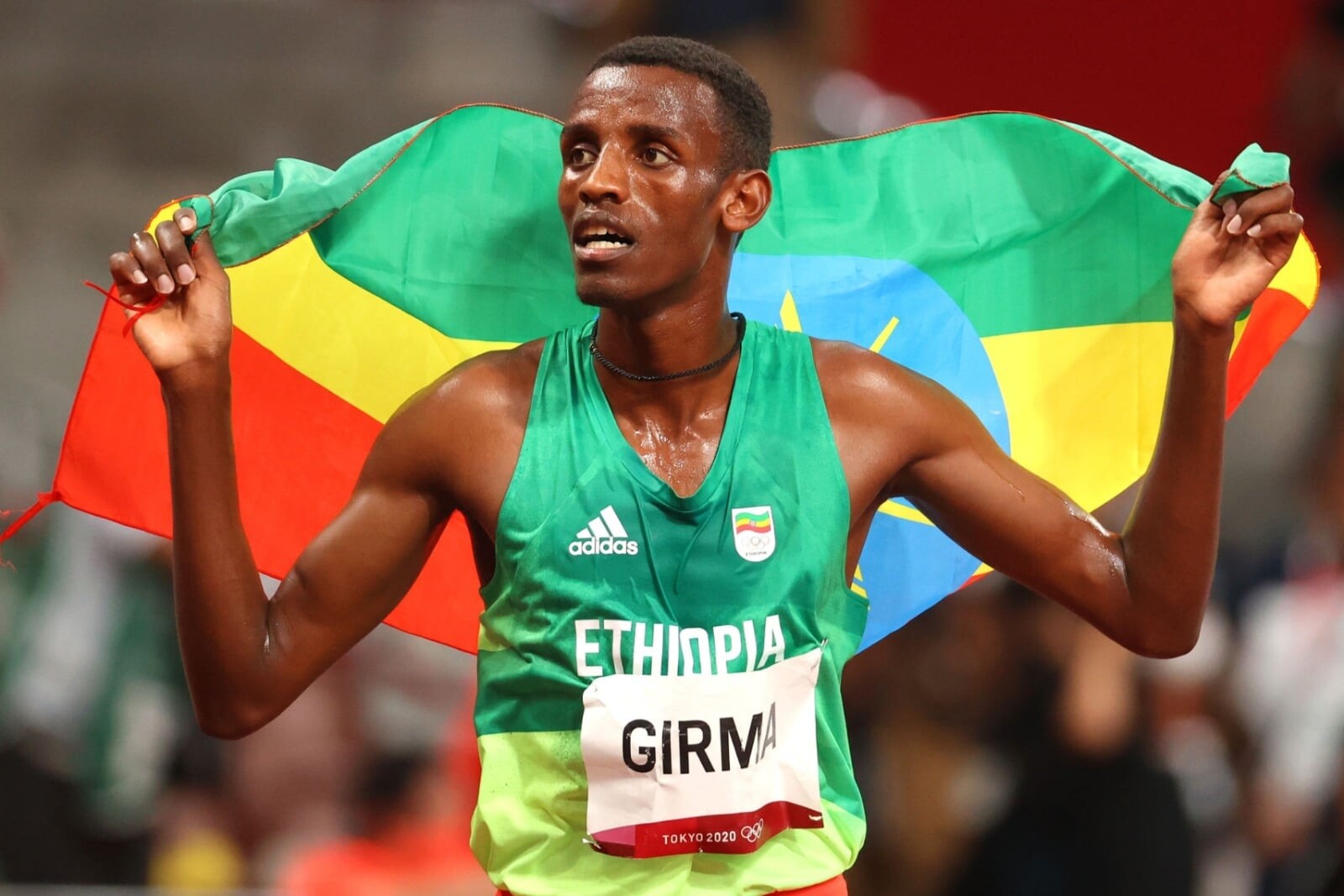
The 27-year-old athlete's standout performance at the Prefontaine Classic, where she shattered the world record in the 5,000 meters with an astounding time of 14:00.21, means she will be challenging rival Kenya's Faith Kipyegon who will chase two gold medals after winning the 1500m and 5000m.
The women's team also boasts an impressive lineup in the 800 meters, featuring Tsige Duguma, Habitam Alemu, and Werknesh Mesele, with Nigist Getachew as the reserve.
In the 1,500 meters, Tsegay will be joined by Birke Haylom and Diribe Wolteji, with Hirut Meshesha on standby. Medina Eisa and Ejgayehu Taye will support Tsegay in the 5,000 meters, with Freweyni Hailu as reserve, while Fotyen Tesfay, Tsigie Gebreselama, and Aynadis Mebratu will compete in the 10,000 meters.
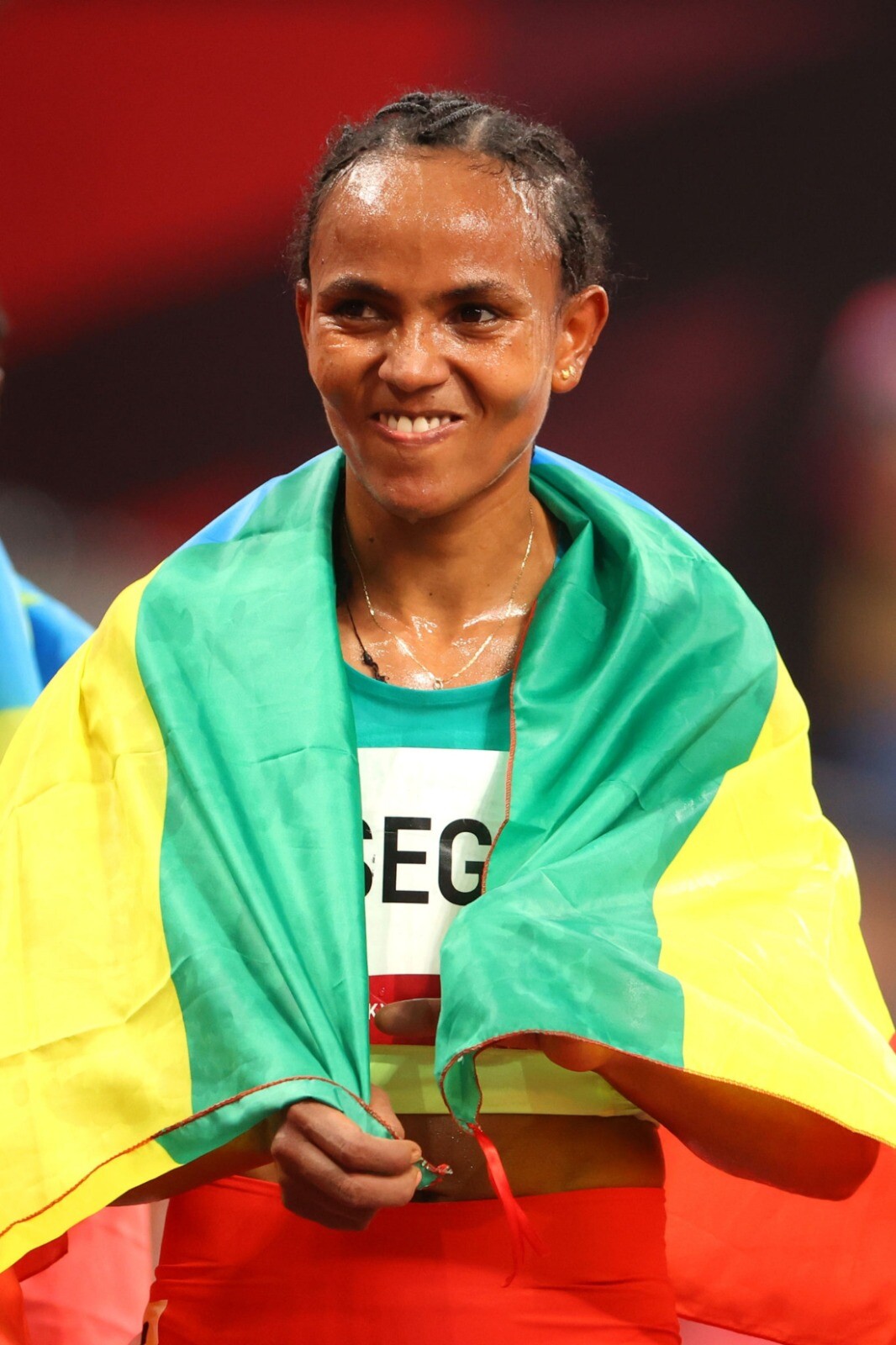
The 3,000 meters steeplechase will see Sembo Almayew and Lomi Muleta in action, and the marathon team includes Tigst Assefa, Amane Beriso, and Megertu Alemu, with Gotytom Gebreslase as reserve.
On the men's side, the team is equally impressive as Abdisa Fayisa, Samuel Tefera, and Ermias Girma will compete in the 1,500 meters.
The 5,000 meters team includes Hagos Gebrhiwet, Yomif Kejelcha, and Addisu Yihune, with Selemon Barega as reserve.
Kejelcha will also contest the 10,000 meters alongside Berihu Aregawi and Biniam Mehari, with Barega again as a reserve.
Lamecha Girma, alongside Samuel Firewu and Getnet Wale, will vie for victory in the men's 3,000 meters steeplechase, with Abrham Sime as reserve.
Ethiopia team to Paris
Women
800 meters: Tsige Duguma, Habitam Alemu, Werknesh Mesele, Nigist Getachew (Reserve)
1500 meters: Gudaf Tsegay, Birke Haylom, Diribe Wolteji, Hirut Meshesha (Reserve)
5000 meters: Gudaf Tsegay, Medina Eisa, Ejgayehu Taye, Freweyni Hailu (Reserve)
10,000 meters: Gudaf Tsegay, Fotyen Tesfay, Tsigie Gebreselama, Aynadis Mebratu (Reserve)
3000 meters Steeplechase: Sembo Almayew, Lomi Muleta
Marathon:Tigst Assefa, Amane Beriso, Megertu Alemu, Gotytom Gebreslase (Reserve)
Men
1500 meters: Abdisa Fayisa, Samuel Tefera, Ermias Girma, Teddese Lemi (Reserve)
5000 meters: Hagos Gebrhiwet, Yomif Kejelcha, Addisu Yihune, Selemon Barega (Reserve)
10,000 meters: Yomif Kejelcha, Berihu Aregawi, Selemon Barega, Biniam Mehari (Reserve)
Men's 3000 meters steeplechase: Lamecha Girma, Samuel Firewu, Getnet Wale, Abrham Sime (Reserve)
Marathon: Sisay Lemma, Deresa Geleta, Kenenisa Bekele, Tamirat Tola (Reserve)
20 km Race walk: Misgana Wakuma
by Festus Chuma
Login to leave a comment
Paris 2024 Olympic Games
For this historic event, the City of Light is thinking big! Visitors will be able to watch events at top sporting venues in Paris and the Paris region, as well as at emblematic monuments in the capital visited by several millions of tourists each year. The promise of exceptional moments to experience in an exceptional setting! A great way to...
more...Why the "Norwegian Method" Training Craze Is Here to Stay
In a highly anticipated race at the 2024 Prefontaine Classic, Jakob Ingebrigsten pitted his revolutionary "Norwegian method" of training against some of the best milers in the world.
The “Mile of the Century”—of the twentieth century, that is—was a duel between John Landy and Roger Bannister at the 1954 Empire Games in Victoria. The two men were, at the time, the only two sub-four-minute milers in the world: Bannister had beaten Landy to the punch by 46 days, but Landy was the reigning world record holder. Their end-of-season clash was as heavily anticipated as any heavyweight boxing duel. Landy led until the final bend, at which point he famously glanced over his left shoulder at precisely the moment that Bannister surged past on his right.
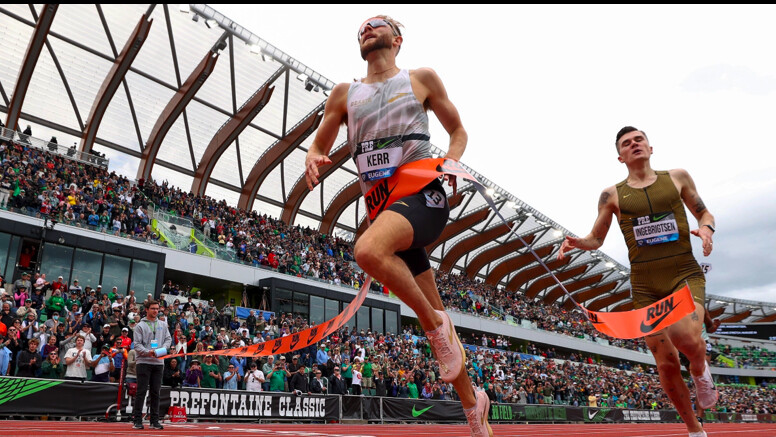
The mile of the current century, at least in terms of pre-race hype and intriguing storylines, took place on Saturday at the Prefontaine Classic track meet in Eugene. It was a gigantic multidimensional grudge match between Jakob Ingebrigsten, the blunt-speaking Norwegian wunderkind who won the 2021 Olympics at the tender age of 20 and whose training methods have sparked wholesale upheaval in the endurance world, and almost every runner who has beaten him or come close to it in recent years—most notably Josh Kerr, the Scotsman who upset him at last summer’s World Championships and has been engaged in an increasingly testy war of words with him ever since.
What gave the race an extra layer of significance, beyond the usual battle for personal supremacy, was that clash of training ideas. Ingebrigtsen is the foremost exponent of what has come to be known as the “Norwegian method” of endurance training. Its hallmark is carefully controlled workout intensities, pushing just hard enough to stimulate adaptation without incurring fatigue that would compromise the next workout. In Ingebrigtsen’s hands, that involves twice-a-week double threshold sessions: workouts like ten times a kilometer with one minute recovery in the morning and evening, with regular ear pricks to check lactate levels and keep the intensity in the right zone, on Tuesdays and Thursdays.
A similar approach has also taken Norwegians to the top of the podium in other sports like triathlon and cross-country skiing, and athletes from other countries have begun emulating it. Norwegian-style training is “the big, sexy thing,” as U.S. miler Hobbs Kessler put it. It might even be “the next step in the evolution of distance running training,” as a group of sports scientists suggested in an academic paper last year (which I wrote about here). It’s very hard to do controlled studies of entire training philosophies, as opposed to specific workouts. So the best litmus test, I suggested, would be clashes on the track leading up to the Paris Olympics. Saturday in Eugene was the first such test.
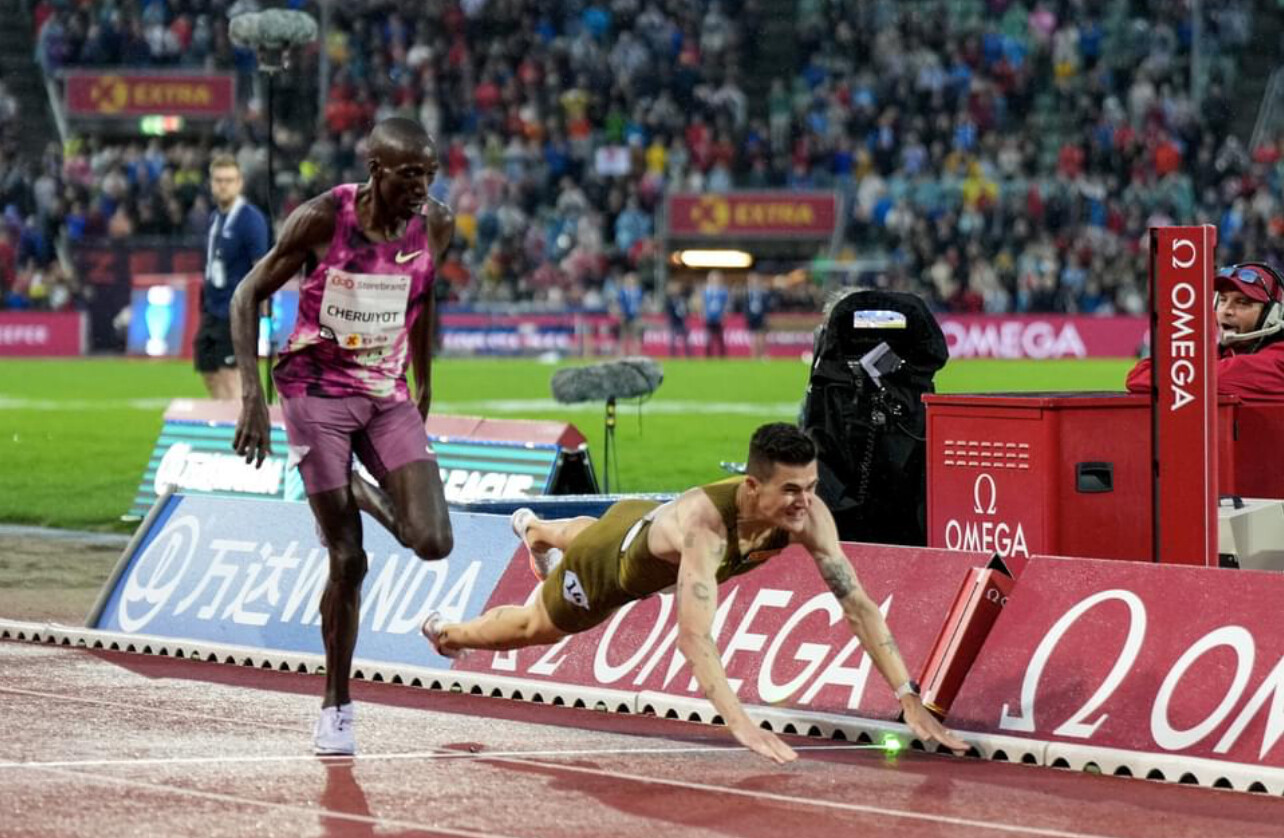
Sexy new things don’t stay sexy and new forever, and it’s fair to say that some of the shine of Norwegian training has worn off since last year. The most notable reputational hit was Kerr’s 1,500-meter win at last summer’s World Championships, kicking past Ingebrigtsen in the final lap after the Norwegian had led most of the race. One loss could be blamed on bad luck, but that made three times in a row: another Scottish runner, Jake Wightman, had outkicked Ingebrigtsen in strikingly similar fashion at the 2022 World Championships, and Ethiopian star Samuel Tefera did the same at the 2022 World Indoor Championships. That starts to look like a systemic flaw in the training approach. While Ingebrigtsen was carefully monitoring his moderate-intensity threshold intervals, Kerr and Wightman and Tefera were presumably ripping off all-out sprints—and they had a racing gear that he seemed to lack.
In Eugene, a rabbit led the field through a quick first half-mile. When he stepped off, it was Kenyan runner Abel Kipsang who pushed onward, with Ingebrigtsen following patiently behind. This was already a surprise: Ingebrigtsen is usually the one pushing the pace. Then, with a lap and a half still remaining, it was the fast finisher Kerr who surged into the lead and made an early bid for victory. Each man, it seemed, was playing the other’s game. The last lap ticked by in slow motion, Kerr unable to pull away and Ingebrigtsen unable to close the gap. That’s how it finished: Kerr in 3:45.34, Ingebrigtsen in 3:45.60, and then seven more men under the once-impregnable 3:50 barrier. In 11th place was Cam Myers, a 17-year-old from Australia, with a time of 3:50.15—two seconds faster than Ingebrigtsen himself ran at Pre as a 17-year-old in 2018.
It would be as foolish to give up on Norwegian training based on a few individual losses as it would be to anoint it the “next step” on the basis of a few individual wins. But if Ingebrigtsen keeps losing, that’s going to reinforce doubts about whether his approach is as effective for head-to-head racing as it is for time trials. There are plenty of caveats: for example, an Achilles injury disrupted Ingebrigtsen’s training for several months over the winter. But there are also other questions. What has happened to his older brothers Henrik and Filip? Both were world-class milers in their own right, but both have been struggling in recent years, as have other prominent Norwegian athletes like Olympic triathlon champion Kristian Blummenfeld, raising questions about the sustainability of the Norwegian approach.
And then there’s the fact that, despite all the hype about the mile, the real marquee event at Pre turned out to be the women’s 10,000 meters, where Kenya’s Beatrice Chebet became the first woman to dip under 29 minutes with a world-record clocking of 28:54.14. Kenyan runners (and their Ethiopian rivals) have been at the top for so long that it’s easy to take their dominance for granted. When I was in college in the 1990s, we were all fascinated by “the Kenyan Way.” That was the subtitle of Toby Tanser’s 1997 book, Train Hard, Win Easy. The secret, of course, was that there was no secret. There was a famous (and almost certainly apocryphal) anecdote about a Kenyan coach who was asked what separated his top runners from the merely good ones. All of them had grown up running to and from school each day, he explained; the champions also went home for lunch.
Part of the current fascination with the Norwegian training method is the suggestion that there is, in fact, a secret—a quantifiable formula, expressed in milimoles per liter of lactate in your blood, to optimize your training, rather than simply an admonition to work hard. But that’s a reductive view of what Ingebrigtsen and his Nordic peers are aiming for. The underlying philosophy of Norwegian training is that a harder workout isn’t always a better one, because it will take too long to recover from. This is hardly a new insight, but in the great merry-go-round of training fads, it was perhaps overdue for a resurgence.
In fact, the original Mile of the Century had a similar subtext. Bannister was the light-training amateur who ran on his lunch hour; Landy was a workout hero with “an insatiable appetite for interval running,” as Bannister wrote. “The great contrast in our training methods was not lost of the Press.” Bannister won the race, but it’s Landy’s training approach that proved to be more influential on subsequent generations. As Ingebrigtsen’s final showdown with his rivals in Paris looms, that’s worth remembering: even if he loses, and even if we decide that lactate meters are unnecessarily complicated, we might still have something to learn from his unorthodox training.
by Outside Online
Login to leave a comment
Tefera takes down Ingebrigtsen to retain world indoor 1500m title
When the Olympic champion met the world indoor champion, something was always going to give. In the end, as Jakob Ingebrigtsen and Samuel Tefera fought towards the line in the men’s 1500m final at the World Athletics Indoor Championships Belgrade 22 on Sunday (20), it was the Norwegian star who had no choice but to concede.
Not that Ingebrigtsen ever gave up, the 21-year-old trying to summon something – anything – to repel the late charge of Tefera, but it was no use, with the 22-year-old Ethiopian taking gold in 3:32.77, Ingebrigtsen taking silver in 3:33.02, and Kenya’s Abel Kipsang the bronze in 3:33.36.
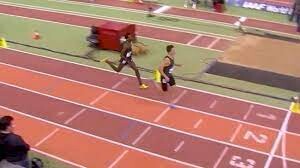
Before the race, the head-to-head record between the big two was 11-0 in favour of Ingebrigtsen, but no one beats Samuel Tefera 12 times in a row, not when this is a distance at which he held the world indoor record at 3:31.04 for the past three years, until Ingebrigtsen broke it earlier this year with 3:30.60.
That race in Lievin, France, in mid-February made the Norwegian the hot favourite for the title in Belgrade, and when the gun fired he adopted similar tactics to the Olympic final in Tokyo, or indeed most races on the circuit.
He made sure it was fast.
With Kipsang rocketing through the opening lap in 27.60, Ingebrigtsen waited until the second to hit the front, stringing the field out behind as he passed 400m in 55.81, 800m in 1:53.9 and 1200m in 2:51.16.
But tracking him all the way, keeping his powder dry, was Tefera, the slightly more measured pace compared to the race in Lievin allowing him to sit in his slipstream into the final bend. Tefera then moved wide off the turn and emptied the tank to edge past his rival up the home straight, retaining his world indoor title with a championship record of 3:32.77.
“The race was very tough, but I feel very happy now because I became the champion,” said Tefera, who said he had surgery on his achilles tendon last year, an injury picked up during the Tokyo Olympics.
“I could not do many activities within the training but now I am completely fit,” he said. “I feel normal and I am ready for any kind of races and championships.”
Ingebrigtsen was gracious in defeat, not that he was too pleased about his silver.
“I came here to fight for the gold and it was a good fight,” he said. “I didn’t feel that great. Usually I feel a bit tired from 600 to 800 then it starts to loosen up but that didn’t happen tonight so I’m not 100 percent. Tefera was better than me tonight. I thought I was better than him, having run the record.”
Asked if he would do anything different if the race was run again, he said: “If I knew that I was completely s*** tonight, then of course I’d do a lot of things different, but I didn’t have any factors telling me that before the race.”In third, Kipsang claimed the first global medal of his career, having been edged into fourth at the Olympics last year. Ethiopia’s Teddese Lemi finished fourth in 3:33.59, with Australia’s Ollie Hoare fifth and Britain’s Neil Gourley sixth.
The following day, on his return home after not feeling fully fit, Ingebrigtsen shared a photo of a positive Covid test on his social media and wrote: "Just arrived home in Sandnes, and decided to take a health check after a strange feeling last night. Leading up to the race, everything felt normal, with negative PCR test and several rapid tests. Bad timing but in some way unavoidable. Now it's all about recovering and getting back to training."
by Cathal Dennehy for World Athletics
Login to leave a comment
World Athletics Indoor Championships
World-Class Competition Lands in China: 2025 World Athletics Championships The global spotlight shines on China as it hosts the 2025 World Athletics Championships, bringing together the planet’s most elite runners, jumpers, and throwers. This prestigious event, organized by World Athletics, represents the pinnacle of track and field competition—where national pride, personal records, and world titles are on the line. ...
more...Abel Kipsang eyes gold at World Championships in Budapest
The 2022 World Indoor Championships 1500m bronze medalist, Abel Kipsang will be targeting gold in his specialty at the World Championships in Budapest, Hungary.
"I'm aiming for gold, but if things go wrong, I should be able to finish on the podium in Budapest," said Kipsang in an exclusive interview on Monday.
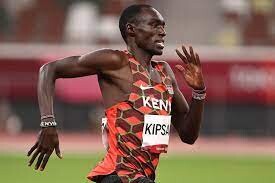
Kipsang has been honing his skills at the Traffic Police headquarters training ground under the watchful eye of legendary athletics coach Alfred Sang.
The National Police officer will attempt to beat his personal best time of 3:31.65, which he set at the Tokyo Games last year.
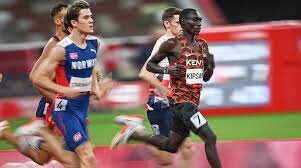
"I also want to beat my previous best time. I've already clocked a 3:29.56 and my new goal is a 3:28.00."
Kipsang expressed his satisfaction with his performance at the weekend's Kip Keino Classic at Moi Stadium in Kasarani. He clocked 3:32.70 minutes to finish second to Reynold Kipkorir, who won in 3:32.01.
"I prepared well for the race, and my body was in top shape. I'm pleased with the time I set at Kasarani. I'm hoping to accomplish a lot more in the coming events," Kipsang remarked.
With his sights set on boarding the Team Kenya jet to Budapest, Kipsang is overjoyed to have already met the qualification standards for the much-anticipated annual global extravaganza, which will be held in August.
"The qualification time set by World Athletics is 3:34.20, and I managed a 3:32.70 at the Kip Keino Classic on Saturday," Kipsang stated.
Despite the stiff competition he is going to face in Budapest from a talented field of rivals, Kipsang says he is not nervous.
"I'm not training with any particular opponent in mind. It's all about getting the greatest time possible to give me an advantage in competition."
He will rely primarily on his extensive knowledge and superior skill to lead him to stardom in Budapest.
Kipsang won the bronze medal at the 2022 World Indoor Championships in Belgrade after finishing fourth in the 1500m at the 2020 Tokyo Olympics.
At the 2019 African Games in Rabat, he competed in his first international competition, finishing fourth in the 800m with a time of 1:45.43 mins.
On June 9, 2021, in Marseille, he ran a personal best of 3:32.6 in the 1500m. He had placed third at the Kenyan Olympic trials 10 days earlier, securing his spot in the postponed 2020 Tokyo Olympics.
His score from Marseille put him in the top ten in the world. Kipsang achieved a new Olympic record in the semifinals of the 1500m on August 5, 2021, in Tokyo, clocking 3:31.65, to improve his personal best.
This record was eventually surpassed by Jakob Ingebrigtsen, who ran 3:28.32 in the final, while Kipsang finished fourth in 3:29.56. Timothy Cheruiyot won silver in 3:29.01, while Josh Kerr finished third in 3:29.05.
In 2022, he won a bronze medal at the World Indoor Championships in Belgrade, clocking a personal best of 3:33.36 and finishing behind Samuel Tefera (3:32.77) and Ingebrigtsen (3:33.02).
by Tony Mballa
Login to leave a comment
World Athletics Championships Budapest 23
From August 19-27, 2023, Budapest will host the world's third largest sporting event, the World Athletics Championships. It is the largest sporting event in the history of Hungary, attended by athletes from more than 200 countries, whose news will reach more than one billion people. Athletics is the foundation of all sports. It represents strength, speed, dexterity and endurance, the...
more...Tefera takes down Ingebrigtsen to retain world indoor 1500m title
When the Olympic champion met the world indoor champion, something was always going to give. In the end, as Jakob Ingebrigtsen and Samuel Tefera fought towards the line in the men’s 1500m final at the World Athletics Indoor Championships Belgrade 22 on Sunday (20), it was the Norwegian star who had no choice but to concede.
Not that Ingebrigtsen ever gave up, the 21-year-old trying to summon something – anything – to repel the late charge of Tefera, but it was no use, with the 22-year-old Ethiopian taking gold in 3:32.77, Ingebrigtsen taking silver in 3:33.02, and Kenya’s Abel Kipsang the bronze in 3:33.36.
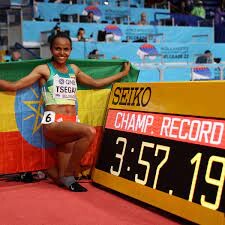
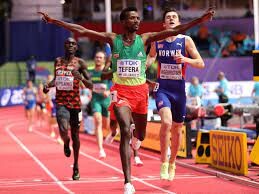
Before the race, the head-to-head record between the big two was 11-0 in favour of Ingebrigtsen, but no one beats Samuel Tefera 12 times in a row, not when this is a distance at which he held the world indoor record at 3:31.04 for the past three years, until Ingebrigtsen broke it earlier this year with 3:30.60.
That race in Lievin, France, in mid-February made the Norwegian the hot favourite for the title in Belgrade, and when the gun fired he adopted similar tactics to the Olympic final in Tokyo, or indeed most races on the circuit.
He made sure it was fast.
With Kipsang rocketing through the opening lap in 27.60, Ingebrigtsen waited until the second to hit the front, stringing the field out behind as he passed 400m in 55.81, 800m in 1:53.9 and 1200m in 2:51.16.
But tracking him all the way, keeping his powder dry, was Tefera, the slightly more measured pace compared to the race in Lievin allowing him to sit in his slipstream into the final bend. Tefera then moved wide off the turn and emptied the tank to edge past his rival up the home straight, retaining his world indoor title with a championship record of 3:32.77.
“The race was very tough, but I feel very happy now because I became the champion,” said Tefera, who said he had surgery on his achilles tendon last year, an injury picked up during the Tokyo Olympics.
“I could not do many activities within the training but now I am completely fit,” he said. “I feel normal and I am ready for any kind of races and championships.”
Ingebrigtsen was gracious in defeat, not that he was too pleased about his silver.
“I came here to fight for the gold and it was a good fight,” he said. “I didn’t feel that great. Usually I feel a bit tired from 600 to 800 then it starts to loosen up but that didn’t happen tonight so I’m not 100 percent. Tefera was better than me tonight. I thought I was better than him, having run the record.”
Asked if he would do anything different if the race was run again, he said: “If I knew that I was completely s*** tonight, then of course I’d do a lot of things different, but I didn’t have any factors telling me that before the race.”
In third, Kipsang claimed the first global medal of his career, having been edged into fourth at the Olympics last year. Ethiopia’s Teddese Lemi finished fourth in 3:33.59, with Australia’s Ollie Hoare fifth and Britain’s Neil Gourley sixth.
The following day, on his return home after not feeling fully fit, Ingebrigtsen shared a photo of a positive Covid test on his social media and wrote: "Just arrived home in Sandnes, and decided to take a health check after a strange feeling last night. Leading up to the race, everything felt normal, with negative PCR test and several rapid tests. Bad timing but in some way unavoidable. Now it's all about recovering and getting back to training."
by Cathal Dennehy for World Athletics
Login to leave a comment
Britain’s Jake Wightman stunned the Olympic champion, the defending world champion and himself at the World Athletics Championships Oregon22 running the race of his life to take the 1500m title
Britain’s Jake Wightman stunned the world on Tuesday night. Winding up to a world-leading PB of 3:29.23, the 28-year-old European and Commonwealth bronze medallist left Jakob Ingebrigtsen with no response as he surged down the home straight, eyes fixed firmly ahead. As the finish line neared, the Briton first raised his arms wide and then threw his hands to his head in disbelief, Norway’s Olympic champion Ingebrigtsen following him home in 3:29.47 and Spain’s Mohamed Katir coming through for bronze in 3:29.90.
“That’s my son,” came the voice over the loudspeaker, the race having been called by in-stadium announcer Geoff Wightman – father and coach of the winner, “and he’s the world champion.”
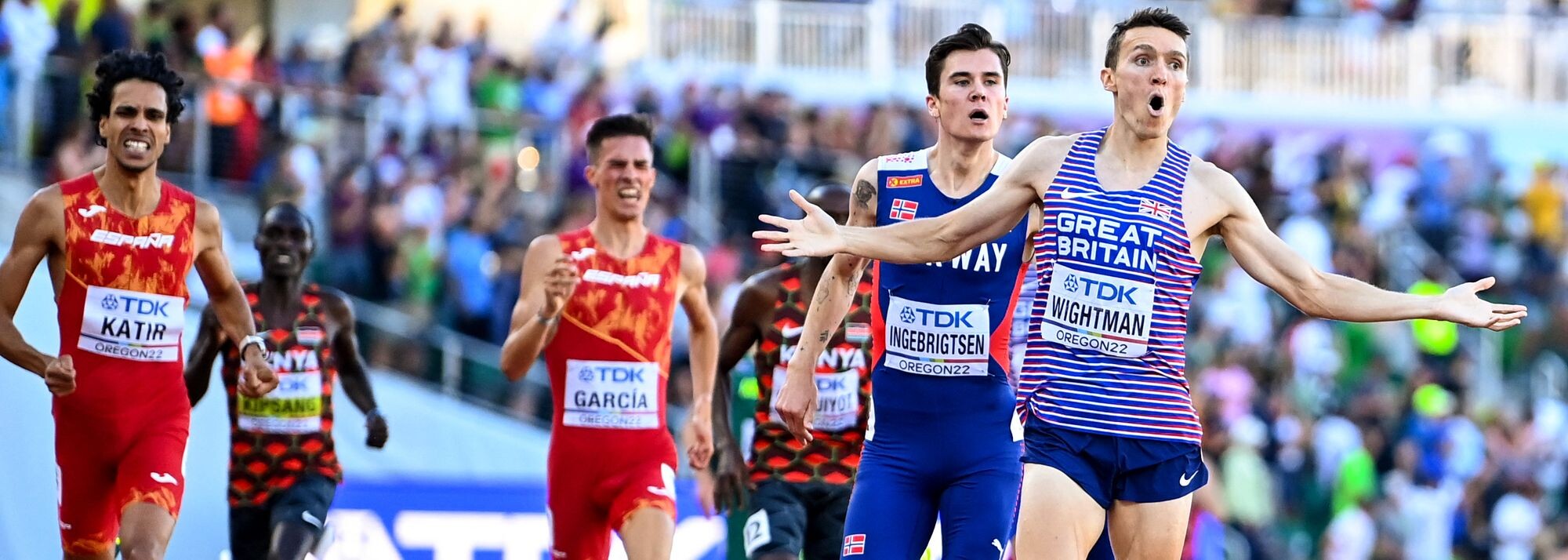
Left disappointed after a 10th-place finish at the Olympic Games in Tokyo, Jake Wightman went back to work. He focused on building his strength over the winter, returning to some cross country racing and doing over-distance work as he refocused on Oregon.
Achieving his aim of staying under the radar through the rounds, he took his place on the Hayward Field start line with Ingebrigtsen to his left and Katir to his right. Kenya’s Abel Kipsang, who had the season’s quickest time going into the race, went straight to the front and led from Ingebrigtsen and Kenya’s defending champion Timothy Cheruiyot, with Wightman sitting in behind them. Ingebrigtsen, who broke the world indoor 1500m record with 3:30.60 in February, moved to the front with two laps to go, with Kipsang and Cheruiyot on his shoulder and Wightman tracking their every move.
At the bell it was Ingebrigtsen, Cheruiyot and Wightman, with Kipsang running wide on his shoulder. Judging the race to perfection, the Briton first surged past Cheruiyot, moving into the lead ahead of Ingebrigtsen with just over 200m to go.
As he left the bend, the anticipated kick from Ingebrigtsen never came. Glancing over his shoulder, the Norwegian looked like he knew he was beaten and settled for silver, followed by Katir and his Spanish teammate Mario Garcia, running a PB of 3:30.20 for fourth.
Wightman’s British compatriot Josh Kerr – the Olympic 1500m bronze medallist – finished fifth in 3:30.60, just ahead of Cheruiyot (3:30.69) and Kipsang (3:31.21).
“It probably won’t sink in until I have retired,” said Wightman, who has run 1:44.18 for 800m and clocked a 3000m PB of 7:37.81 indoors in February. “It’s mad. I had such a disappointing year in Tokyo last year. I don’t think people realise how crushing it was to go in with such high expectations and come away hoping for a medal but ending up 10th.”
His parents – both former elite marathon runners – were at Hayward Field to see him win, his father on the commentary mic and his mother, Susan, in the stands.
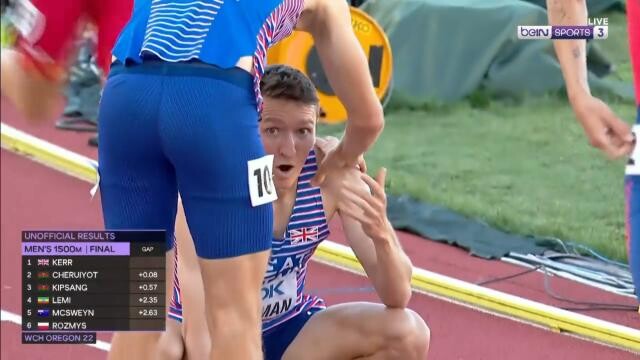
“Dad can be a bit of a robot on the mic sometimes,” smiled Wightman junior, whose time in Oregon is the third-quickest in World Championships history. “Some say robot, some say professional. I hope he broke that down today. My mum was in tears, so someone was crying.”
Reflecting on the race, he added: “The strength for me is that if I can get there with 200m to go, I will always make a move because it’s how I feel best running. As soon as the opportunity was there to go past, I just wanted to be leading the bend. The only perk of having a good 800m PB in races like that is if you are still there with 200m to go, which I haven’t managed to be in previous years.
“Even when I was coming down the home straight I felt strong, but Jakob is a beast and I never knew if he was going to come past.”
But he didn’t. Wightman's last lap was timed at 54.84, Ingebrigtsen’s was 55.24. In Tokyo, the Norwegian clocked 54.42 for the final 400m.
“I was feeling good, but I couldn't keep up with Jake in the last 200m,” said Ingebrigtsen. “I'm owning it. I am very disappointed by not winning, but I'm very happy for him. He is a great runner.”
He will now refocus on the 5000m, the heats for which take place on Thursday.
It was the 5000m that Katir contested at last year’s Olympics, the 24-year-old finishing eighth, but after setting national records at 1500m, 3000m, 5000m and 10km last year his decision to race the shorter event in Oregon paid off as he bagged the bronze with his second-fastest ever time.
Just behind him was European U23 silver medallist and NCAA runner-up Garcia, who runs for the University of Mississippi and achieved the fastest ever time by a collegiate athlete.
Cheruiyot has been some way off his best form this season and although making his presence felt in the early stages, he didn’t have the strength in the finish and faded out of medal contention.
Ethiopia’s Samuel Tefera won the world indoor title ahead of Ingebrigtsen and Kipsang in Belgrade in March but finished ninth in his semifinal in Oregon, missing out on the final.
by World Athletics
Login to leave a comment
World Athletics Championships Budapest23
Budapest is a true capital of sports, which is one of the reasons why the World Athletics Championships Budapest 2023 is in the right place here. Here are some of the most important world athletics events and venues where we have witnessed moments of sporting history. Throughout the 125-year history of Hungarian athletics, the country and Budapest have hosted numerous...
more...Ethiopia Has Changed Its Team Again for the 2022 Worlds
On Tuesday, the Ethiopian Athletics Federation announced its team for the 2022 World Athletics Championships in Eugene. If this sounds familiar, that’s because Ethiopia already named its team on June 13…and then updated it four days later to sub in Dawit Seyaum after she ran 14:25 to win the Oslo Diamond League.
Tuesday’s list — which the federation says is the final roster (it pretty much has to be, since entries were due to World Athletics on Monday) — features even more changes, which will have a major impact on Worlds, which begin on July 15 at Hayward Field. Remember, at World Indoor Championships earlier this year in Belgrade, Ethiopian athletes won eight of the 12 available medals across the 1500 and 3000 meters — including all four golds and a 1-2-3 sweep in the women’s 1500. The country is a distance powerhouse.
Here is the full roster, with changes, followed by some analysis on what it all means.
Men’s 800 (no changes)Ermiyas GirmaTolosa Bodena
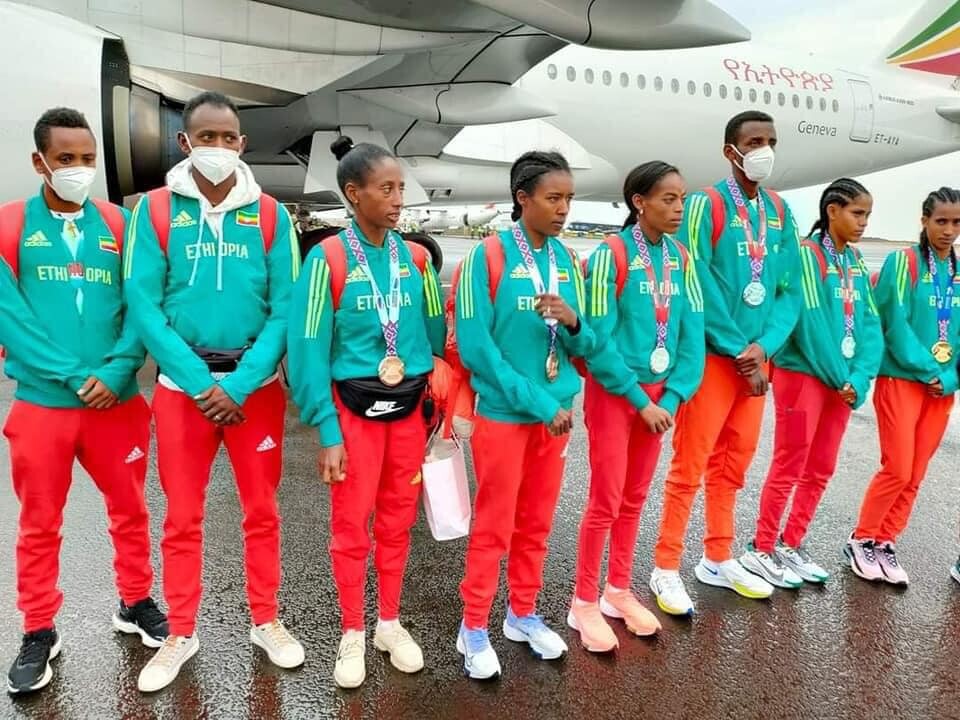
Women’s 800Habitam AlemuDiribe WeltejiHirut Meshesha (1:58.54 sb) replacing Freweyni Hailu (1:59.39 sb)
Men’s 1500Samuel TeferaTaddese Lemi (3:37.06 sb) replacing Melese Nberet (no races this year)Samuel Abate
Women’s 1500Gudaf Tsegay (3:54.21 sb) replacing Axumawit Embaye (3:58.80 sb)Freweyni Hailu (3:58.18 sb, 4th in Olympics) replacing Ayal Dagnachew (3:59.87 sb)Hirut Meshesha
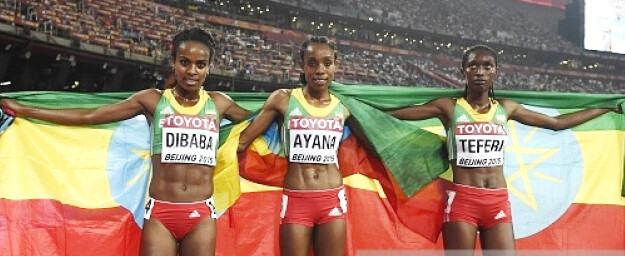
Men’s 3000 steeple (no changes)Lamecha GirmaHailemariyam AmareGetnet Wale
Women’s 3000 steepleMekides AbebeWorkua GetachewSimbo Alemayehu (9:09.17 sb at age 18) replacing Zerfe Wondemagegn (9:27.75 sb)
Men’s 5,000Muktar EdrisBerihu AregawiYomif KejelchaSelemon Barega replacing Telahun Bekele
Women’s 5,000Ejgayehu TayeLetesenbet Gidey (14:24.59 sb) replacing Gudaf Tsegay (14:26.69 sb)Dawit Seyaum (14:25.84 sb) replacing Fantu Worku (14:47.37 sb)
Men’s 10,000Selemon BaregaTadese WorkuBerihu Aregawi (26:46.13 sb) replacing Milkesa Mengesha (27:00.24 sb)
Women’s 10,000Letesenbet GideyEjgayehu Taye (30:44.68 sb) replacing Girmawit Gebrzihair (30:47.72 sb)Bosena Mulate
Men’s marathonLelisa DesisaTamirat TolaMosinet GeremewSeifu Tura
Women’s marathonGotytom GebreslaseAbabel YeshanehAshete Bekere
Quick Takes
1) Ethiopia’s team just got A LOT stronger and Ethiopia went from no one doubling to a lot of doublers
In recent years, Ethiopia has been reluctant to allow its stars to double at global championships. Last year in Tokyo, Ethiopia had two huge 5,000m medal threats in Selemon Barega (Olympic 10,000 champ) and Berihu Aregawi (the 10,000 4th placer who would go on to win the Diamond League 5,000 title) but neglected to enter either in the 5,000 meters. Of the three men Ethiopia did enter, two failed to even make the final and the third, Milkesa Mengesha, wound up 10th.
The federation took criticism after that misstep and it looked as if it would double down in 2022 as the initial team named in June featured no doublers. But the final squad features five athletes double-entered: World Indoor bronze medalist Hirut Meshesha (800/1500) and Ejgayehu Taye (14:12 pb, #5 woman all-time), Letesenbet Gidey (women’s 5k/10k world record holder), Barega and Aregawi, all of whom are running the 5,000 and 10,000.
2) The meet is more interesting with the Ethiopians doubling; the men’s 5,000 final is now totally stacked
The World Championships are meant to be about the best against the best. When a world final is over, we don’t want to be asking ourselves, “What would have happened if Athlete X was in the race?” But that’s absolutely what we were thinking after the 2021 Olympic 5000 final without Barega. And it’s been an issue for a lot longer than that. Only once in his career did Haile Gebrselassie attempt the 5,000/10,000 double at a global champs (1993), in part because there were still prelims in the 10,000 in those days and in part because he didn’t want to tire himself for the lucrative post-championship meets in Europe.
That shouldn’t be an issue in 2022 (and if it is, it won’t have been the fault of the Ethiopian federation) as the distance finals are much stronger with Taye, Gidey, Barega, and Aregawi doubling up. The men’s 5,000 could be an all-timer. Not only do you have Olympic 5,000 champion Joshua Cheptegei of Uganda, but now we have Olympic 10,000 champ Barega stepping down and Olympic 1500 champion Jakob Ingebrigtsen stepping up. It’s reminiscent of one of the most famous races in track history, the 2003 World Championship 5,000 final in Paris which featured Hicham El Guerrouj stepping up from the 1500 and Kenenisa Bekele stepping down from the 10,000 only for both of them to be defeated by an 18-year-old Eliud Kipchoge.
Having Aregawi in the 10,000 makes for a stronger race as well as he was 3rd at the Ethiopian trials in that event and set a Diamond League record for margin for victory when he ran 12:50 to win the Pre Classic 5,000 by 16 seconds.
3) Gudaf Tsegay’s medal odds went up but her gold medal odds went down
Tsegay is pretty clearly the #2 women’s 1500 runner in the world. She won World Indoors by 5+ seconds and is 3+ seconds faster than the #3 1500 woman in the world right now. But she’s also not close to double Olympic champ Faith Kipyegon, who beat her convincingly at Pre, 3:52.59 to 3:54.21.
Initially, Tsegay was entered in the 5,000 at Worlds (she ran the 5,000 only at the Olympics last year, earning the bronze medal) and while there’s no overwhelming favorite in that event like Kipyegon (well at least until we see how Sifan Hassan looks this weekend), Tsegay is not as good at the 5,000 as the 1500 (as evidenced by her defeat to countrywoman Dawit Seyaum in the 5,000 in Oslo). By running the 1500, Tsegay has a better shot at a medal but her odds at gold are worse.
4) It just got a WHOLE LOT harder for the Americans to medal
An American medal in the women’s 5,000 or 10,000 was already unlikely, so the Ethiopian roster changes didn’t make a huge impact on the chances of Karissa Schweizer or Elise Cranny. But the medal odds of Grant Fisher, who finished 5th in the Olympic 10,000 last year, are way lower today than they were a week ago (a statement also true for his US teammates Woody Kincaid and Joe Klecker).
Last Wednesday, two of the four men who finished ahead of Fisher in the 10,000 in Tokyo were major question marks. Bronze medalist Jacob Kiplimo hadn’t raced on the track all year, while Aregawi, the 4th placer, was named to Ethiopia’s team in the 5,000 only. Since then, Kiplimo ran 7:29 for 3,000 in Stockholm to show he’s very fit right now and Aregawi was added to Ethiopia’s 10,000 squad. Plus Barega was added to the 5,000.
Those developments will make it significantly harder for Fisher (or any American man in the 5,000 or 10,000) to earn a medal. That said, if an American can somehow medal, it will go down as a monumental achievement since no one can accuse these fields of being watered down.
Sinclaire Johnson‘s medal hopes in the 1500 also took a BIG hit. With Tsegay now in the 1500, two medals seem to be spoken for and new addition Freweyni Hailu, who was 4th in the Olympics last year at age 20, is better than Ayal Dagnachew (who is no slouch herself, world junior 800 champ last year and 3:59 this year).
5) Ethiopia needs to figure out a better way to do this
One of the most important jobs an athletics federation has is selecting national teams. And for countries that don’t use a “top 3 at the trials” model — which is to say, every country except for the US — things can get prickly as someone, inevitably, is going to be upset they’re missing out on the team.
There are ways to limit the outrage. The simplest solution is the one USATF has already discovered: hold a trials and just pick the top three finishers. Ethiopia actually did this ahead of the Olympics last year. The problem was, they held all the races on the same day, making it impossible for athletes to try out for both the 5,000 and 10,000 teams.
But even if you don’t want to stage a trials, a federation can avoid much of the backlash by announcing a clear criteria ahead of time and sticking to it. You want to pick the team based off season’s bests? Fine. Just let everyone know before the season starts and let them plan their races accordingly. Transparency and consistency are the keys.
Heck, even if you want to be subjective and use a selection panel, you can at least cut down on some of the drama by letting the athletes know in advance that they’ll have to run a few performances to impress the selectors.
What you don’t want to do is announce a team well before the entry deadline (and three days before two key Diamond League meets featuring most of your athletes) only to drastically change it three weeks later. Which is exactly what happened in Ethiopia, leaving athletes like Telahun Bekele (winner of the 5,000 in Oslo) to think they’re on the team only to yank it away less than a month later.
In the end, Ethiopia ended up picking the team by season’s best except in the 10,000, where it staged a trial race (and the top 3 there were the fastest 3 on the year). If it had just used that criteria throughout the year and stuck to it, there would be fewer angry people right now. The athletes deserve better.
by Jonathan Gault
Login to leave a comment
World Athletics Championships Budapest23
Budapest is a true capital of sports, which is one of the reasons why the World Athletics Championships Budapest 2023 is in the right place here. Here are some of the most important world athletics events and venues where we have witnessed moments of sporting history. Throughout the 125-year history of Hungarian athletics, the country and Budapest have hosted numerous...
more...Ingebrigtsen and others in record breaking form in Oslo despite the rain
A Wanda Diamond League record from Jakob Ingebrigtsen (first photo) in the mile, along with meeting records from Mondo Duplantis in the pole vault and Femke Bol in the 400m hurdles brightened a rainy evening at the Bislett Games in Oslo on Thursday (16).
Ingebrigtsen has won almost all there is to win in middle-distance events, but a senior Dream Mile victory in Oslo was one thing missing from the 21-year-old’s resume. In fact, before today no Norwegian man had ever won the prestigious discipline at the Bislett Games.
But, racing in the final individual track event of the night, Ingebrigtsen ensured the 15,000 fans at the Bislett Stadion went home happy as he won the mile in a Norwegian record of 3:46.46, breaking the Wanda Diamond League record in the process.
Paced through the first two laps in 56.01 and 1:53.30, Ingebrigtsen was tracked closely by Australia’s Oliver Hoare and Britain’s Jake Wightman for most of the race. The Olympic 1500m champion never appeared to be under too much strain, though – even when Hoare was attempting to close in on the leader with half a lap left.
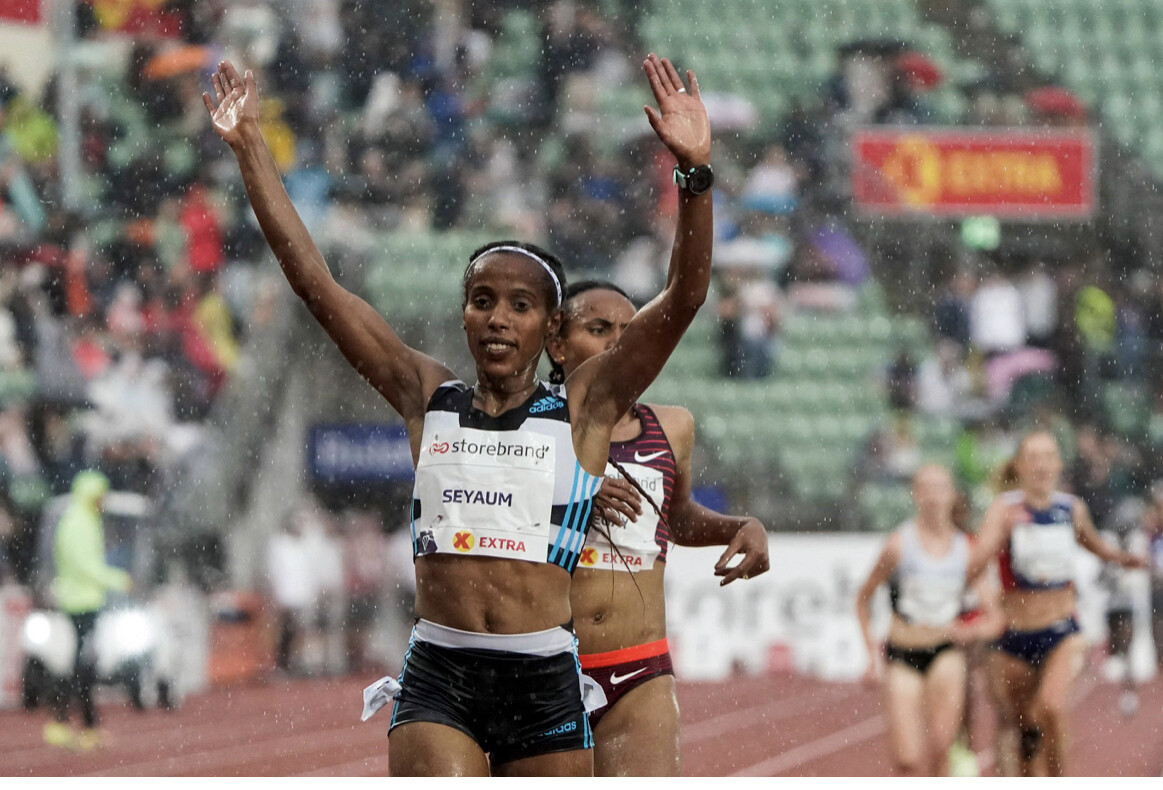
Ingebrigtsen – roared on by the home crowd, many of whom were on their feet – kicked down the home straight and crossed the line in 3:46.46, taking almost a second off his own Norwegian record and moving up to sixth on the world all-time list, just 0.14 shy of Steve Cram’s European record.
Hoare finished second in 3:47.48 to break the Oceanian record and move to 13th on the world all-time list. Wightman was third in a PB of 3:50.30 from fellow Brit Neil Gourley (3:52.91). There was also a national record for Charles Grethen of Luxembourg in fifth (3:53.20).
“I was ready to run fast and was happy to do that and to win,” said the world indoor silver medallist. “Some work needs to be done before the World Championships, but I will work hard to be in better shape there.
“Last year I was sick and couldn't race here, so it was even more special here tonight, as being the first Norwegian to win the Dream Mile. Doing things nobody else has done before is really great.”
Seyaum and Bekele lead Ethiopian 5000m sweeps
Dawit Seyaum may be new to the 5000m, but the former 1500m specialist looked anything but inexperienced as she outkicked her fellow Ethiopians to win a high-quality race.
The opening pace was steady, the first 1000m covered in 2:53.83 and 2000m reached in 5:52.33. Versatile Norwegian runner Karoline Bjerkeli Grovdal then took up the pace in the second half and passed through 3000m in 8:48.65, leading a large lead pack. Grovdal held on to that lead for another 1500 metres, but then Seyaum and compatriots Letesenbet Gidey, Gudaf Tsegay and Almaz Ayana started battling for the lead with one lap to go.
Ayana’s challenge soon faded, leaving Seyaum, Tsegay and Gidey out in front. Seyaum’s kick down the home straight was enough to break free from Tsegay and she won in 14:25.84. Tsegay, the Olympic bronze medallist at this distance, was second in 14:26.69 while world record-holder Gidey was third in 14:26.92. Grovdal held on to fourth place in a Norwegian record of 14:31.07 and USA’s Alicia Monson was fifth in a big PB of 14:31.11.
(Second photo)Dawit Seyaum celebrates her 5000m win at the Wanda Diamond League in Oslo
For just the second time in history, seven women finished inside 14:35 and eight women finished inside 14:40.
There was another Ethiopian 1-2-3 in the men’s 5000m, though this time the 1500m standout was beaten by the 5000m specialist.
The pace was steady though never blazing quick, meaning most of the field was still in contention at the business end of the race. Two-time world indoor champion Samuel Tefera led at 3000m, passing in 7:54.39, but then sat back in the pack to save his legs for a potential fast finish.
He made his way back to the front of the pack in the closing stages, but could not get on level terms with Bekele, who kicked ahead and won in 13:03.51. Tefera held on for second in 13:04.35, just ahead of compatriot Getnet Wale (13:04.48).
Keely Hodgkinson won the battle of the Brits over 800m, getting the better of fellow Olympic silver medallist Laura Muir.
The 20-year-old ran a controlled and assured race and kept her cool in the closing stages to win comfortably in 1:57.71. Muir was second in 1:58.09, ahead of France’s Renelle Lamote (1:58.50) and world champion Halimah Nakaayi of Uganda (1:58.68).
by World Athletics
Login to leave a comment
Norman reigns in fierce 400m clash with record run in Eugene
USA’s Michael Norman produced the standout performance at the Wanda Diamond League meeting in Eugene on Saturday (28), the 24-year-old setting a Diamond League 400m record of 43.60 to beat Grenada's Kirani James (44.02) and Matthew Hudson-Smith, who broke the British record with 44.35.
On a cool, blustery afternoon at Hayward Field, with many outbreaks of heavy rain, Norman was one of many athletes who defied the conditions to make it another memorable edition of the Prefontaine Classic.
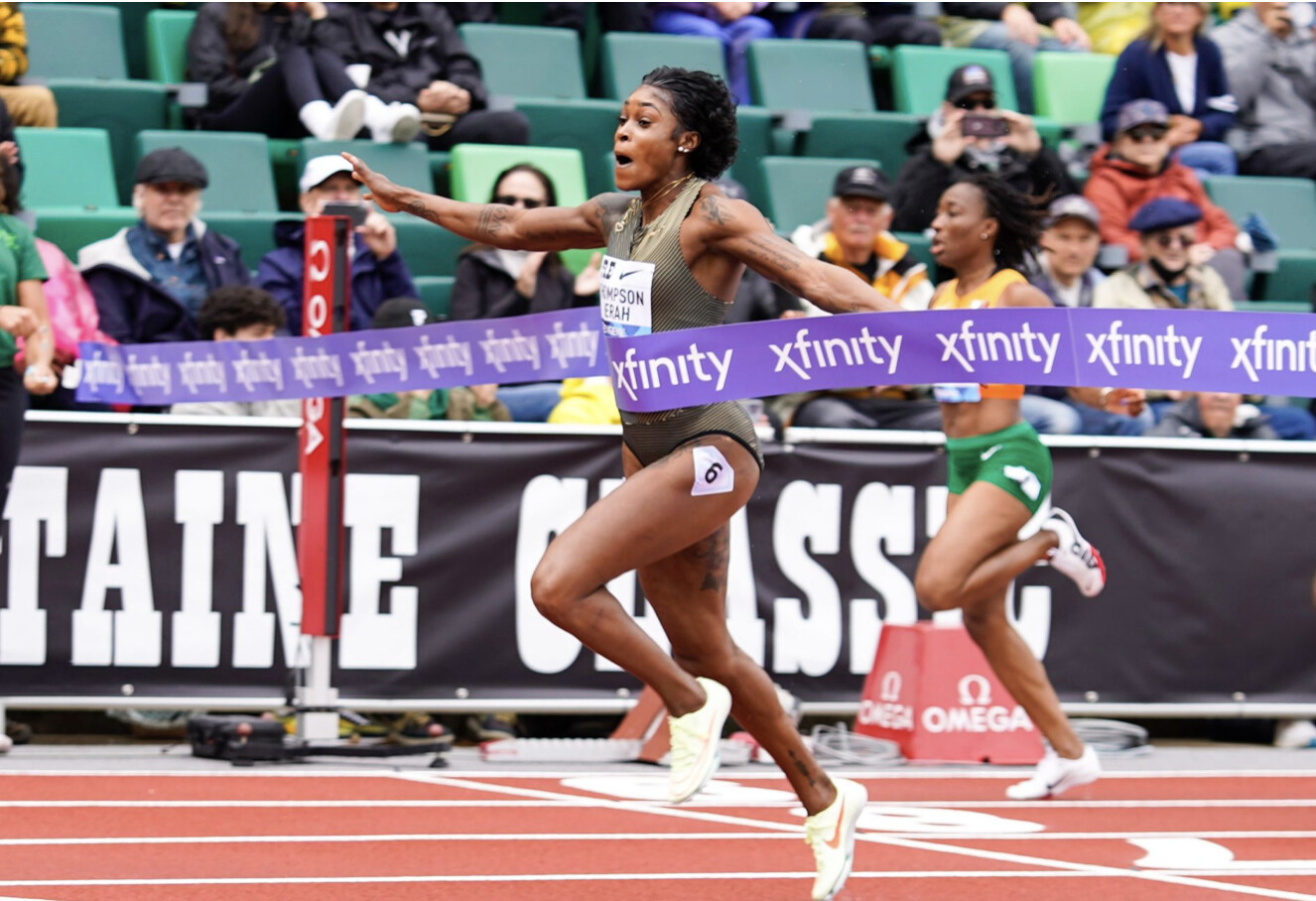
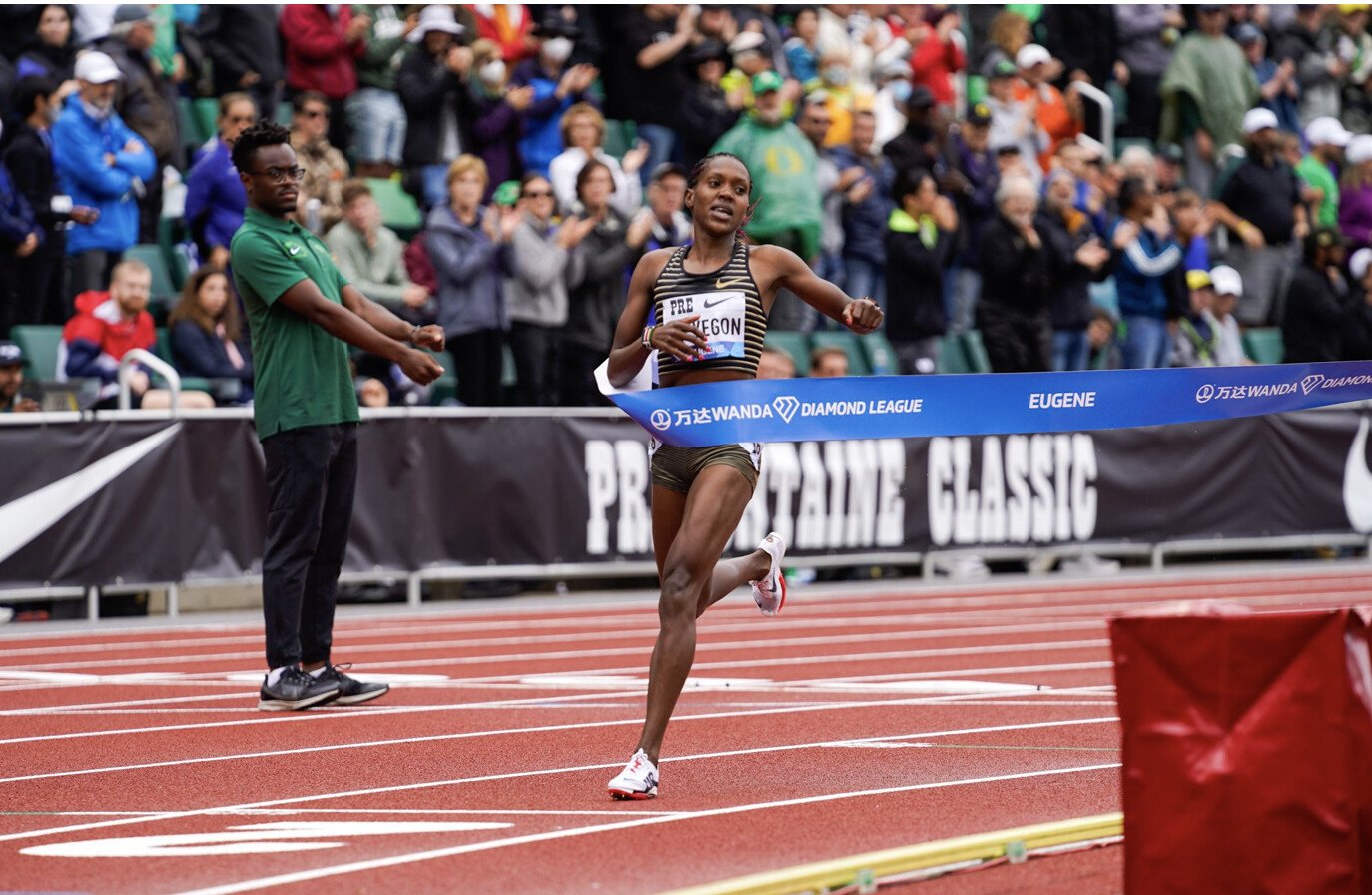
“I had zero expectation of what I could run today,” said Norman, who revealed he and coach Quincy Watts had gone “back to the basics” during their winter training. “Hard work and consistency with diet and training,” he said. “My motto this year has been that if it’s comfortable, it’s too easy – on the weight room or the track. Based on how I felt, there are a few areas I can improve on.”
Looking to next month’s US Championships and the World Athletics Championships Oregon22 on the same track in July, Norman said: “I’m going to train like I want to do something special, and when the time comes, the time comes.”
Kenya's Faith Kipyegon was equally peerless when taking the women’s 1500m in commanding fashion, the Olympic champion tracking chief rival Gudaf Tsegay until the final turn, at which point she blew by and came home a clear winner in a world lead and meeting record of 3:52.59. Tsegay got second in 3:54.21 with Canada’s Gabriela Debues-Stafford third in 3:58.62. “The race today gave me great morale that everything I’m doing is correct towards the World Championships – that’s my biggest fish and I hope for the best, for the gold medal,” said Kipyegon, who is “going to think about” a world record attempt at 1500m later in the summer. “I was not expecting (to run 3:52) when I saw the rain this morning, but I felt comfortable. It was good.”
USA's Ryan Crouser produced by far the standout performance in the field events, the Olympic shot put champion looking utterly peerless when launching a world-leading 23.02m effort in the second round. That left him well clear of long-time rivals Joe Kovacs (22.49m) and Tom Walsh (21.96m).
What made it more impressive is that Crouser did not use his full technique, but threw off a “static” starting position, which prior to today had never produced a 23-metre effort. Crouser said he usually throws 40-60cm farther when utilising his full technique.
“I thought 23 was possible but I thought I’d have to get into my full (technique) to do it,” said Crouser. “My best static ever was in the 22.90s. To throw a static PR, under a heavy load, without a taper, is a really good indicator of where I can be seven or eight weeks from now.” Berihu Aregawi turned in a superb solo performance to take the men’s 5000m in a meeting record and world lead of 12:50.05, coming home well clear of fellow Ethiopians Samuel Tefera (13:06.86) and Selemon Barega (13:07.30). Aregawi swept to the front in the third kilometre after the pacers stepped aside and the Ethiopian broke clear of the field, powering through to the final laps to a rapturous reception from the crowd, which historically loves displays of fearless distance running.
In the men’s 400m hurdles, Brazil’s Alison Dos Santos achieved another dominant performance, clocking a world-leading 47.23 to come home a distant winner ahead of USA’s Khalifah Rosser and Quincy Hall, who both clocked personal bests of 48.10.
“I’m happy with this, but I want more, I want to go faster,” said Dos Santos. “Me and (Rai) Benjamin never win against (Karsten) Warholm, and nobody wants to lose, but it’ll be hard for us to come up against him at the World Championships and win. He is the boss, the guy to beat, and for winning the final you need to run 45 (seconds) – everyone is so strong.”
Sprint queen Elaine Thompson-Herah once again asserted her supremacy with a comfortable win in the 100m, clocking 10.79 (0.7m/s) to beat Sha’Carri Richardson, who bounced back to form with a 10.92 clocking to edge Shericka Jackson, who was third in 10.92. Britain’s Dina Asher-Smith was fourth with 10.98.
“I’m happy to cross the line healthy and with the win,” said Thompson-Herah, who explained prior to the event that she’d been managing a niggle in training. “It got me ready for my championship in Jamaica next month.”USA’s Trayvon Bromell laid down a big marker ahead of next month’s US Championships by defeating his chief rivals in the 100m, pulling clear to take a comfortable win in 9.93 (-0.2m/s). Fred Kerley was next best with 9.98, while Christian Coleman faded from first at halfway to third at the finish, clocking 10.04 just ahead of Noah Lyles (10.05).
"I really just wanted to come out with the win as I knew the wind was iffy today," said Bromell. "There were some technical things I wanted to do better with but I just have to go back to the drawing board and try to fix it."
Olympic champion Jasmine Camacho-Quinn came from behind to score an impressive win in the 100m hurdles, a non-Diamond League event, the Puerto Rican clocking 12.45 into a slight headwind (-0.7m/s) with Nigeria’s Tobi Amusan second in 12.58 and USA’s Tonea Marshall third in 12.66.
“It was a little sloppy,” said Camacho-Quinn. “I hit my trail leg a couple of times and that slowed me up, but I’ll take it. I went 12.4 in these conditions.”
Jamaica’s Shelly-Ann Fraser-Pryce was a clear winner of the women’s 200m in 22.41 (0.8m/s), with USA’s Brittany Brown second in 22.74 and Anthonique Strachan of Bahamas third in 22.76.
Norway’s Jakob Ingebrigtsen re-asserted his supremacy in the Bowerman Mile, the Olympic champion breaking clear with a lap to run and coming home a comfortable winner in a world lead of 3:49.76, with Australia’s Ollie Hoare second in a PB of 3:50.65 and world champion Timothy Cheruiyot third in 3:50.77.
“It was a great race – I’m where I’m supposed to be,” said Ingebrigtsen, who will “for sure” double over 1500m and 5000m at the World Athletics Championships Oregon22. Looking towards the European Championships in Munich, he said he’d “love to do 800m, 1500m, steeplechase, 5km, 10km and marathon, but I don’t think that’s possible with the schedule.”
He will next race over 800m before competing at the Wanda Diamond League meeting in Oslo on 16 June. Britain’s Keely Hodgkinson utilised her typical sit-and-kick tactics to great effect to take the women’s 800m, the Olympic silver medallist powering clear of race leader Natoya Goule entering the home straight and holding off the late surge of world indoor champion Ajee Wilson to win in a world lead of 1:57.72, with Wilson second in 1:58.06 and Raevyn Rogers third in 1:58.44.
Olympic champion Athing Mu was a late withdrawal after contracting Covid-19, but Hodgkinson is looking forward to renewing their rivalry in July.
“It would have been good if she was here, but she’s going to be there at the World Champs and I’m sure we’ll have a good duel then – I look forward to racing her,” said Hodgkinson. “I felt really good, it was a bit windy out there but there was good competition, it was a good run. I can’t complain.”
Sweden’s Khaddi Sagnia unleashed a PB of 6.95m (1.0m/s) to take victory in the women’s long jump, with Nigeria’s Ese Brume second with 6.82m and USA’s Tara Davis third with 6.73m.
Norah Jeruto, the Kenyan-born athlete who now represents Kazakhstan, produced an impressive display to win the women’s 3000m steeplechase in 8:57.97, a world lead. Bahrain’s Winfred Mutile Yavi was close behind in second, clocking a PB of 8:58.71, while Ethiopia’s Mekides Abebe was third in 9:03.26. In the men’s 1500m, a non-Diamond League event, New Zealand’s Samuel Tanner took victory in a PB of 3:34.37 in front of Britain’s Neil Gourley, who clocked a PB of 3:34.85.
Italy’s Martina Caironi set a world record of 14.02 in the T63 women’s 100m, while in the men’s T62 400m, Germany’s Johannes Floors took the win in 48.13.
Login to leave a comment
Prefontaine Classic
The Pre Classic, part of the Diamond League series of international meets featuring Olympic-level athletes, is scheduled to be held at the new Hayward Field in Eugene. The Prefontaine Classicis the longest-running outdoor invitational track & field meet in America and is part of the elite Wanda Diamond League of meets held worldwide annually. The Pre Classic’s results score has...
more...Norway’s Jakob Ingebrigtsen tests positive for COVID-19
The reigning 1,500m Olympic champion, Norway’s Jakob Ingebrigtsen, was upset by Samuel Tefera of Ethiopia, who won the men’s 1,500m on Sunday at the World Indoor Championships. Although Ingebrigtsen won his first world championship medal, he said post-race that he was feeling off, later testing positive for Covid-19 when he arrived back home in Norway on Monday.
Ingebrigtsen shared the news on his Instagram page after stating that he felt strange Sunday night, immediately after his final. “Before the race, everything seemed normal, with a negative PCR test and several rapid tests,” explained Ingebrigtsen on Instagram. His coach and older brother Henrik Ingebrigtsen seems to believe Jakob caught it on his flight down to Serbia on Thursday, according to Eurosport.
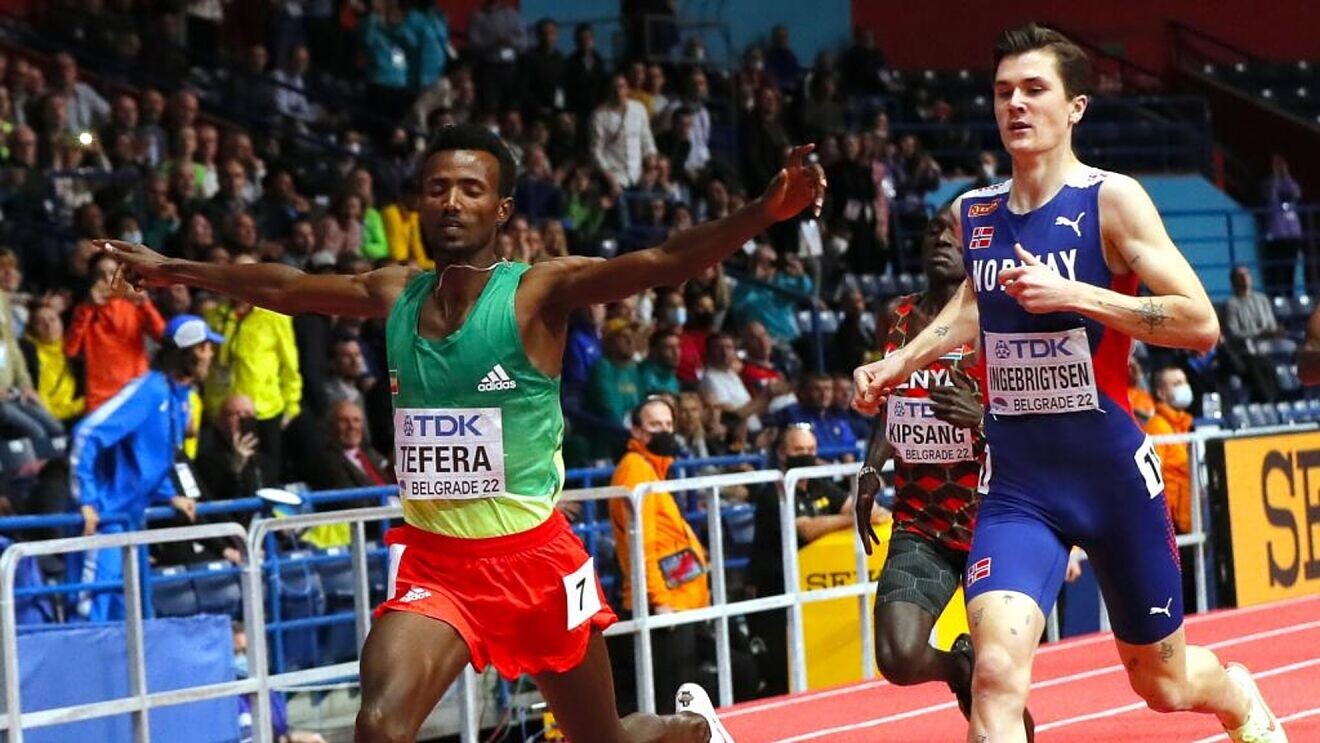
“You can minimize risk, but you can’t rule out infection,” Henrik said. “This virus affected his recovery after his qualifying race on Saturday.”
There is much speculation online that Ingebrigtsen raced the 1,500m final with the virus. He took control of the race with several laps to go but was unable to hold off Tefera, whose kick overcame the Norweigan over the final 50 meters to win back-to-back golds in 3:32.77. Tefera also won the 1,500m at the last World Indoor Championships in 2018.
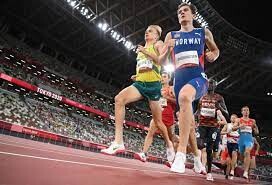
Jakob mentioned on his Instagram story that he plans to rest and recover, then hopefully get back into training in preparation for winning gold at the World Championships in July.
by Marley Dickinson
Login to leave a comment
Global 1500m champions Jakob Ingebrigtsen and Samuel Tefera ready to clash in Belgrade
Two global champions are on a collision course in the men’s 1500m at the World Athletics Indoor Championships Belgrade 22, with Olympic gold medallist Jakob Ingebrigtsen of Norway looking to depose Ethiopia’s Samuel Tefera as the world indoor champion.
Based on their recent clash in Lievin, where Ingebrigtsen broke Tefera’s world indoor 1500m record, clocking 3:30.60, the pressure and expectation will rest with the 21-year-old Norwegian. That Lievin race was Ingebrigtsen’s sole outing of the indoor season, and he looked majestic as he bounded away from Tefera over the final 300 metres after the pacemaker stepped aside.
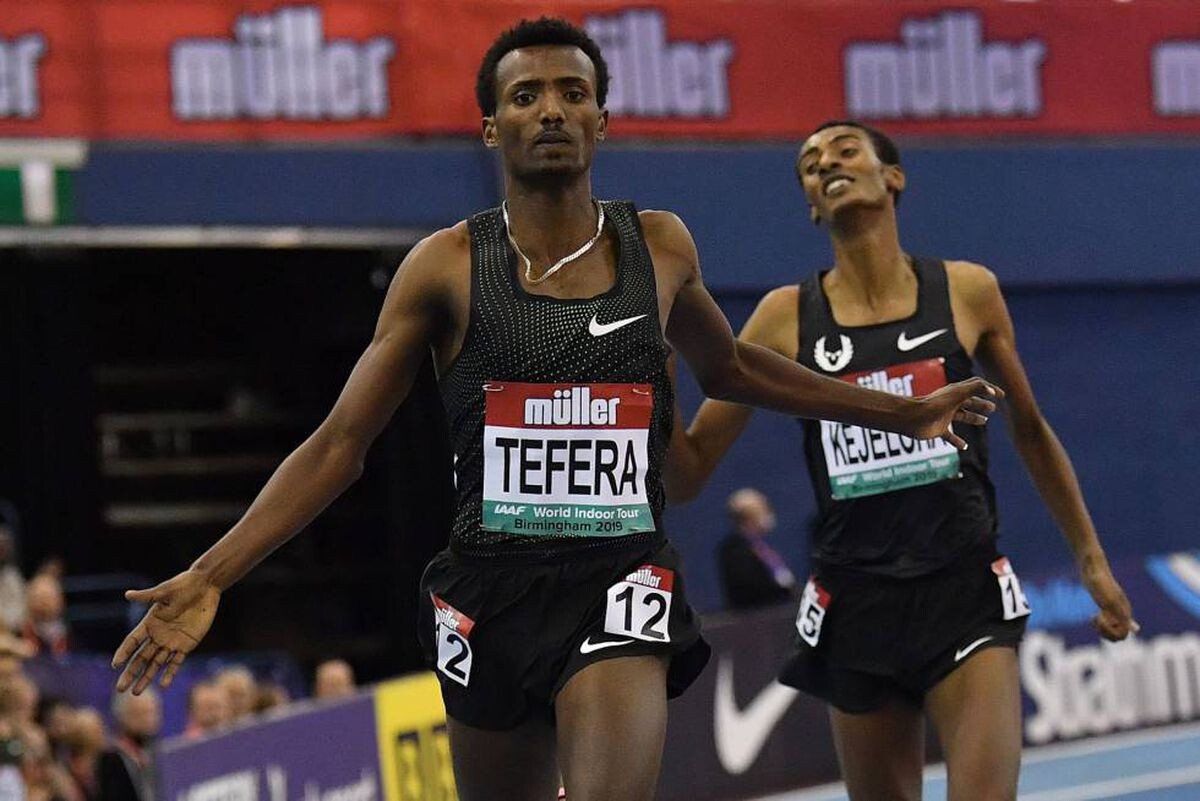
A championship final, of course, will present a very different challenge, but Ingebrigtsen showed in Tokyo and at last year’s European Indoor Championships that he has the tactical nous to go with his physical gifts. With his long-time rival Timothy Cheruiyot bypassing the indoor season, he will likely have to do his own pace-making if he wants a fast final, the kind of race in which he has become nigh-on unbeatable.
Tefera, however, will not go down without a considerable fight, and the 22-year-old Ethiopian gave Ingebrigtsen a much better race in Lievin than the three-second margin of victory suggested.
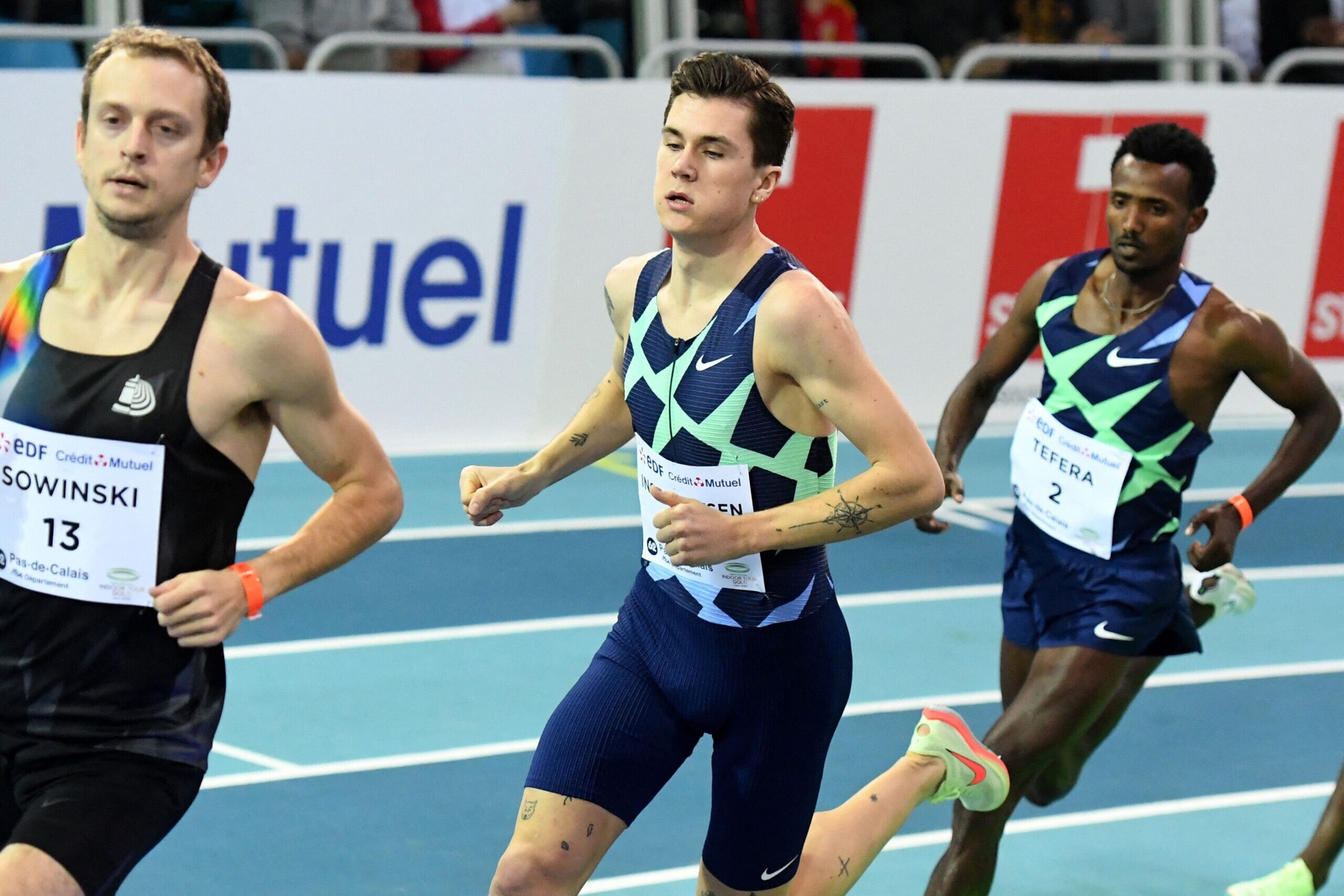
Perhaps Ingebrigtsen’s biggest challenger, though, will be Kenya’s Abel Kipsang. He finished fourth in the Olympic final last year and showed impressive indoor credentials when taking victory in Birmingham last month in 3:34.57. A recent 1:45.84 clocking for 800m outdoors in Nairobi signals he’s got the speed to be a threat here.
The British challenge will be led by Neil Gourley, who clocked 3:35.32 in Boston last month and who was runner-up in a slow 1500m final at the British Indoor Championships. He will be joined by George Mills, who impressed in Birmingham last month when clocking a PB of 3:36.03 against a world-class field.
Another athlete keen to see a fast final will be Oliver Hoare, the Australian who clocked a 3:50.83 mile to win at the Millrose Games in New York in January. In that race he powered away from Olympic bronze medallist Josh Kerr, showing the kind of closing speed and strength that will make him dangerous, particularly in a fast race.
Spain’s Ignacio Fontes, like Hoare, was an Olympic finalist last year and he booked his place here with a runner-up finish behind Adel Mechaal at the Spanish Indoor Championships, with Mechaal later electing to focus on the 3000m in Belgrade.
Germany’s Robert Farken is another who’ll have high expectations after the 24-year-old lowered his PB to 3:35.44 in Birmingham last month, while Ethiopia’s Teddese Lemi clocked an indoor PB of 3:35.84 last month and has 1:44 800m speed – which should prove useful in this realm.
Ireland’s Andrew Coscoran will be hoping to reproduce the form that saw him take victory in Staten Island last month with a 3:53.64 mile, where he was followed in third place by compatriot Luke McCann, who will join him in Belgrade.
The US charge will be led by Josh Thompson and Sam Prakel, who finished second and fourth respectively at their national championships.
by World Athletics
Login to leave a comment
World Athletics Indoor Championships
World-Class Competition Lands in China: 2025 World Athletics Championships The global spotlight shines on China as it hosts the 2025 World Athletics Championships, bringing together the planet’s most elite runners, jumpers, and throwers. This prestigious event, organized by World Athletics, represents the pinnacle of track and field competition—where national pride, personal records, and world titles are on the line. ...
more...Jakob Ingebrigtsen breaks indoor 1,500m world record
The Olympic 1,500m gold medalist, Jakob Ingebrigtsen of Norway, had a magical return to track on Thursday, setting an indoor 1,500m world record at Le Meeting d’Athlétisme Hauts-de-France Pas-de-Calais in Liévin, France. Ingebrigtsen broke Samuel Tefera’s 1,500m record by half a second to win the men’s 1,500m in 3:30.60.
The pacers took Ingebrigtsen out through 1,100m at world record pace, and he closed the final 200m lap in 27 seconds to come away with the record, beating Tefera by three seconds. This is the 21-year-old’s first senior world record.
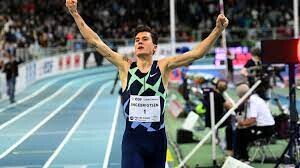
Last month, it was made public that Ingebrigtsen was no longer going to be coached by his father, Gjert Ingebrigtsen. Since then, Jakob’s training has been overseen by his older brother Henrik, 30, who was the European 1,500m champion in 2012.
Jakob has his eyes on the World Championship double in 2022, which would mean taking home gold in the 1,500m at next month’s World Indoor Championships in Belgrade, Serbia, and then 1,500m gold later this summer at the World (outdoor) Championships in Eugene, Ore.
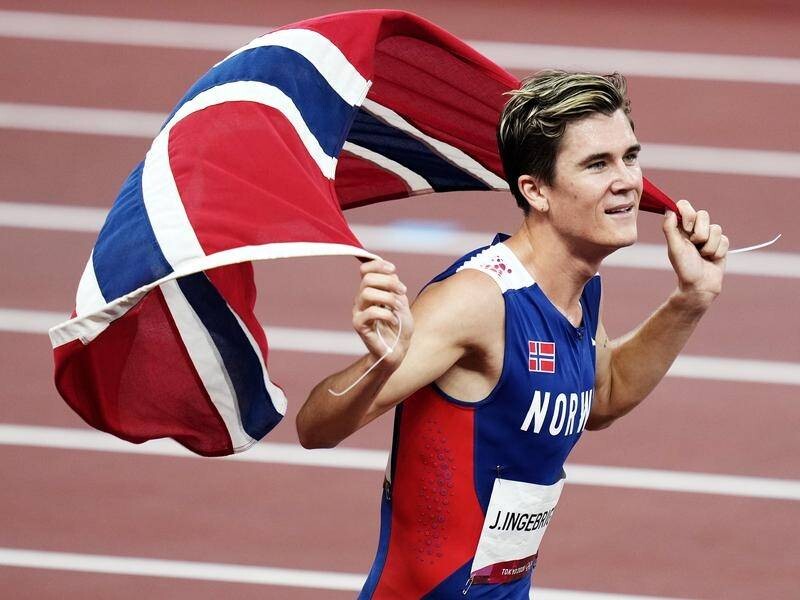
The world’s fastest man, Italy’s Marcell Lamont Jacobs, continued his winning ways in the 60m in Liévin (6.50).
Jacobs beat a loaded field that featured U.S. sprinter Ronnie Baker, African 100m record holder Ferdinand Omanyala and France’s Jimmy Vicaut. This race was Jacobs’ second straight win to start the season, although he finished 0.01 seconds off his season’s best 6.49.
by Marley Dickinson
Login to leave a comment
Olympic silver medalist Keely Hodgkinson to race at Müller Indoor Grand Prix Birmingham
Olympic silver medalist Keely Hodgkinson (coach: Trevor Painter, club: Leigh) will take on the world at the Müller Indoor Grand Prix Birmingham on Saturday February 19, 2022.
The British 800m record holder is the first leading athlete to announce their intention to compete at the event, which returns to the Utilita Arena Birmingham in the new year.

Star-studded fields are set to align for the World Athletics Indoor Tour Gold event, one of seven marquee indoor events across the globe, with Hodgkinson to the fore.
With tickets now on general sale, you can secure your seat to watch Hodgkinson in the second city.
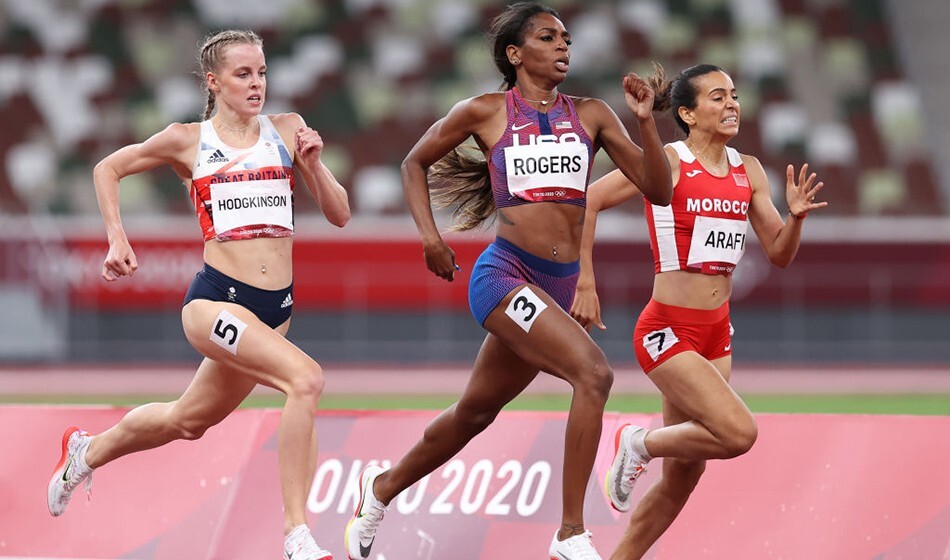
“I’m so excited to be running at the Müller Indoor Grand Prix Birmingham,” said the 19-year-old. “It’s going to be one of my big races of the season and I can’t wait to be back in front of a home crowd.
“I had a great indoor season in 2021 and that set me up perfectly for the outdoors and the Olympic Games.
“Competing at home with a big crowd in Birmingham, will hopefully set me up for the same in 2022 with some massive major Championships on the horizon.”
Hodgkinson made her big breakthrough in the 2021 indoor season. She smashed the world under-20 indoor 800m record in Vienna last January with a clocking of 1:59.03 seconds.
The Leigh Harrier then won 800m gold at the European Athletics Indoor Championships in Torun, becoming the youngest British winner of a European indoor title for more than 50 years.
Hodgkinson’s feats in the 2021 outdoor season need no introduction as she claimed a landmark second national title at the Müller British Athletics Championships. She then took Tokyo by storm, smashing Dame Kelly Holmes’s national record with 1:55.88 to win Olympic silver on her Games debut.
The Müller Indoor Grand Prix Birmingham was last staged in 2019, when Hodgkinson’s fellow Olympic silver medallist Laura Muir broke the 31-year-old British mile record. Women’s middle-distance running took centre stage with Britain’s Shelayna Oskan-Clarke, who went on to win European indoor gold that season, taking 800m victory with 2:01.16.
Ethiopia’s Samuel Tefera broke the men’s 1500m world record two years ago and hopes will be high once again for fast times and packed crowds in Birmingham.
Tickets are on sale NOW.
Login to leave a comment
Muller Indoor Grand Prix Birmingham
The Müller Indoor Grand Prix Birmingham is one of the leading indoor meetings in the world with world-class athletics as part of the World Indoor Tour Gold series. The event will be staged at its traditional home at Utilita Arena Birmingham setting the tone for what is set to be an incredible year of track & field. ...
more...World record-holders Letesenbet Gidey and Gudaf Tsegay are among the 34 athletes named on Ethiopia’s team for the Tokyo Olympic Games.
Gidey and Tsegay – like all other members of the team – will focus on just one event each. Gidey will contest the 10,000m, the event at which she set a world record of 29:01.03 last month, while Tsegay will line up for the 5000m, having clocked a world-leading 14:13.32 in Hengelo on 8 June.
The team also includes world indoor 1500m champion Samuel Tefera and world silver medallists Selemon Barega and Yomif Kejelcha.
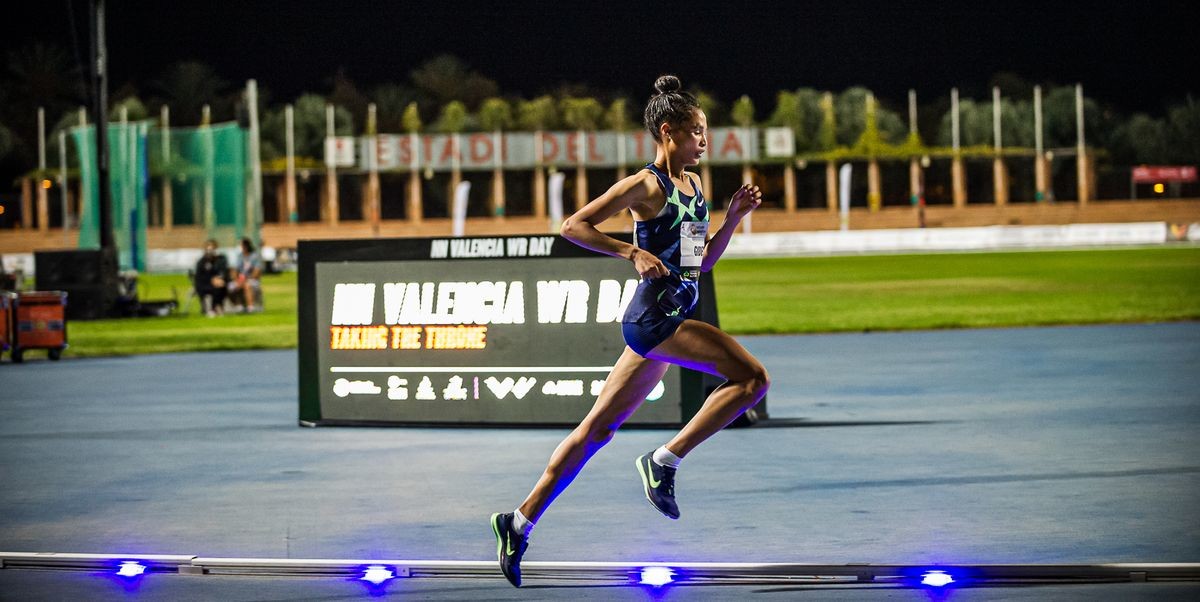
Ethiopian team for Tokyo
WOMEN 800m:
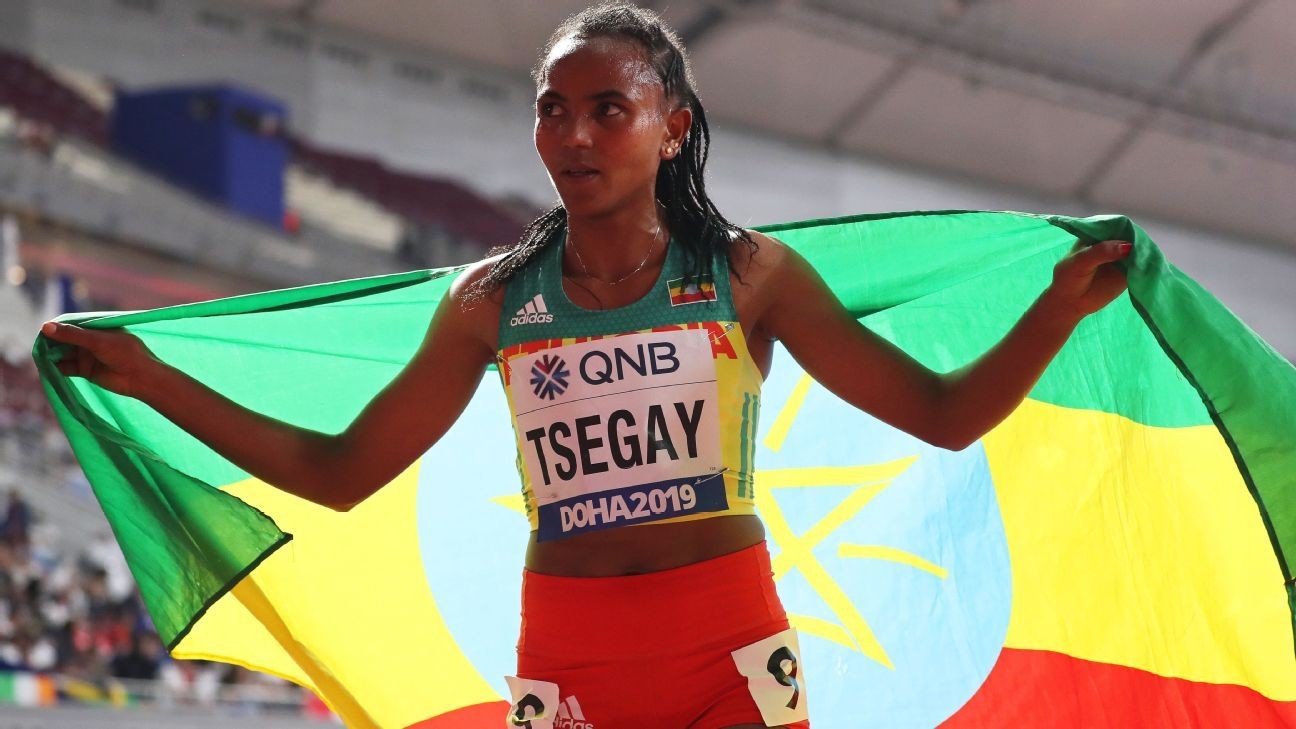
Habitam Alemu, Workwuha Getachew, Worknesh Mesele1500m: Freweyni Hailu, Lemlem Hailu, Diribe Welteji5000m: Ejigayehu Taye, Senbere Teferi, Gudaf Tsegay10,000m: Tsigie Gebreselama, Tsehay Gemechu, Letesenbet GideyMarathon: Roza Dereje, Birhane Dibaba, Tigist Girma3000m steeplechase: Mekides Abebe, Lomi Muleta, Zerfe Wondimagegn
MEN 800m:
Melese Nibret1500m: Samuel Abate, Tadesse Lemi, Samuel Tefera5000m: Milkesa Mengesha, Nibret Melak, Getnet Wale10,000m: Berihu Aregawi, Selemon Barega, Yomif KejelchaMarathon: Leslisa Desisa, Shura Kitata, Sisay Lema3000m steeplechase: Hailemariam Amare, Abrham Sime, Tadesse Takele
by World Athletics
Login to leave a comment
Tokyo 2020 Olympic Games
Fifty-six years after having organized the Olympic Games, the Japanese capital will be hosting a Summer edition for the second time, originally scheduled from July 24 to August 9, 2020, the games were postponed due to coronavirus outbreak, the postponed Tokyo Olympics will be held from July 23 to August 8 in 2021, according to the International Olympic Committee decision. ...
more...Tefera and Nakaayi join Lievin cast
Organisers of the Meeting Hauts-de-France Pas-de-Calais have confirmed that world indoor 1500m champion Samuel Tefera and world 800m champion Halimah Nakaayi will compete at the World Athletics Indoor Tour meeting in Lievin on 19 February.
Tefera won the 1500m convincingly in Lievin last year, finishing three seconds ahead of his nearest rival. Six days later, he broke the world indoor record for the distance in Birmingham, clocking 3:31.04 to break a record that had stood for 22 years.
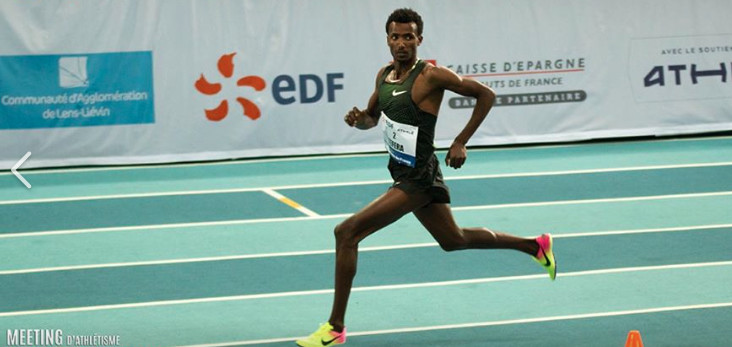
Hicham El Guerrouj, who held the world indoor record before Tefera, still holds the Lievin meeting record at 3:32.01.
Nakaayi was a surprise winner of the 800m at last year’s World Athletics Championships, taking gold in a Ugandan record of 1:58.04. The 25-year-old has never competed indoors before this year, but it’s highly likely she will break the Ugandan indoor record of 2:04.57 during her indoor campaign.
Login to leave a comment
Jakob Ingebrigtsen is set to return to Dusseldorf, the third stop of the 2020 World Athletics Indoor Circuit
Jakob Ingebrigtsen will headline the men's 1500m at the PSD Bank Meeting in Dusseldorf on 4 February, the third stop of the 2020 World Athletics Indoor.
Ingebrigtsen powered to a commanding upset victory in the race last year, freshly-minted world indoor record holder Samuel Tefera in 3:36.02 to break the world U20 record. The Norwegian teenager, who famously took the 1500m/5000m double at the 2018 European Championships, went on to produce another notable campaign in 2019 which culminated at the World Championships in Doha with a fourth place finish in the 1500m and a fifth place showing over 5000m.
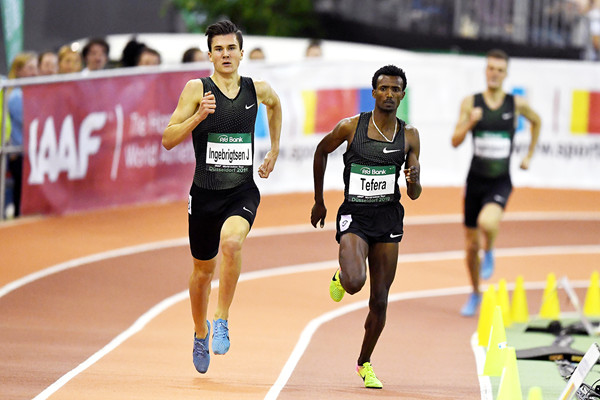
He also improved the European U20 records in both events with 3:30.16 and 13:02.03 performances at the Lausanne and London legs of the Diamond League, respectively. Ingebrigtsen celebrated his 19th birthday on 19 September.
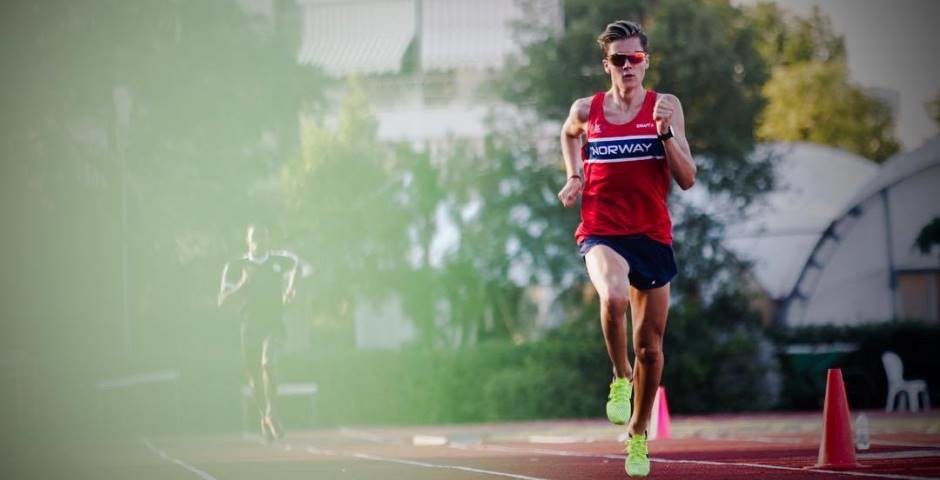
Older brother Filip, 26, will also return. He was third in the Dusseldorf race last year.
Organizers also announced that Piotr Lisek of Poland, the reigning world bronze medalist indoors and outdoors and a member of the event’s six-meter club but indoors and outdoors, will be among the headliners in the pole vault.
by World Athletics
Login to leave a comment
Jakob Ingebrigtsen is aiming to make history in Aarhus Denmark
It has been 25 years since a European athlete last finished in the top 10 in the U20 men’s race at the IAAF World Cross Country Championships. The last individual medallist – a gold one at that – from Europe came 10 years before that.
But Jakob Ingebrigtsen could be capable of rewriting both of those statistics when he lines up for the U20 men’s race in Aarhus, Denmark.
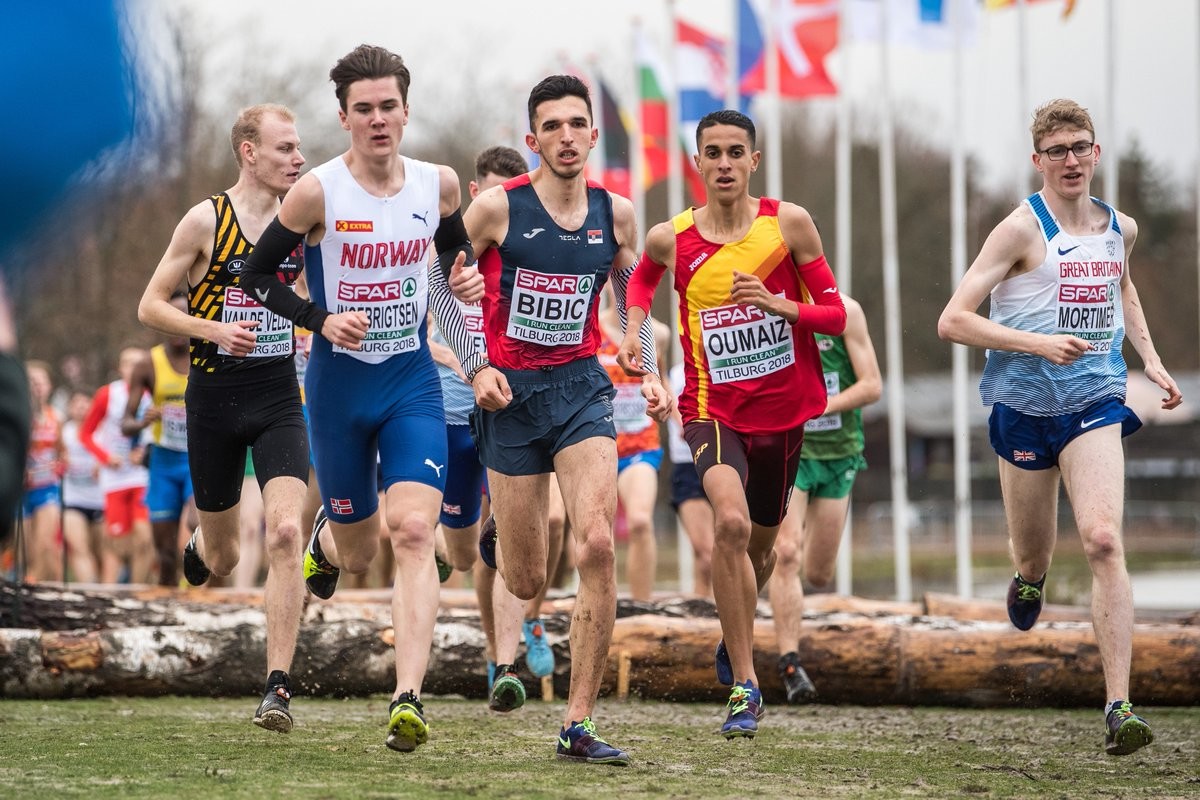
The 18-year-old Norwegian caused a stir last year when he won the 1500m and 5000m at the senior European Championships in Berlin, setting a continental U20 record of 13:17.06 in the latter. One month prior he had set a European U20 1500m record of 3:31.18 in Monaco.
After winning his third consecutive European U20 cross-country title in December, he beat world indoor record-holder Samuel Tefera over 1500m in Dusseldorf in February and went on to win 3000m gold and 1500m silver at the European Indoor Championships in Glasgow.
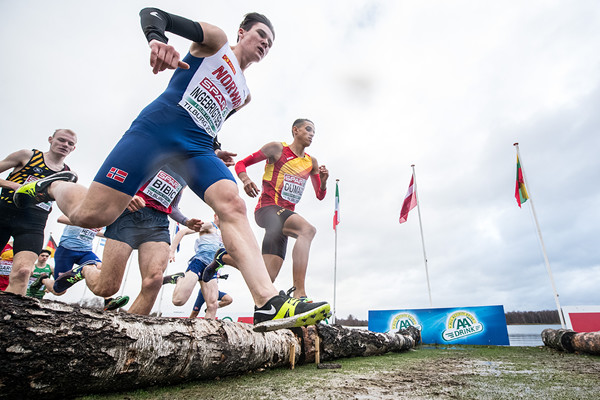
Ingebrigtsen boasts the fastest track PBs of the field and has considerably more international racing experience. But he has never raced farther than 6.3km and could become something of a target if some of the stronger nations utilise team tactics.
All 39 individual medals on offer in the U20 men's race from the past 13 editions have been shared between Kenya (23), Ethiopia (10) and Uganda (6). The same three nations once again look poised to battle it out for individual and team medals.
Unsurprisingly, the Kenyan team appears to be the strongest. Led by national U20 cross-country champion Samuel Chebolei, the team also includes Commonwealth Youth Games 3000m champion Edwin Kiplangat Bett, who finished eighth in the U20 men’s race two years ago in Kampala, and Leonard Bett, the world U18 steeplechase champion.
Login to leave a comment
World Athletics Cross Country
Athletes from across the globe will descend on Australia for the World Athletics Cross Country Championships Bathurst 2021. Mount Panorama is better known as the home of Australia’s premier endurance motor race, but in one year from now, it will welcome the world’s best endurance runners for what will be Australia’s first World Athletics Series event in...
more...Yomif Kejelcha smashed the Indoor Mile World Record clocking 3:47.01 in Boston Sunday
Yomif Kejelcha from Ethiopia broke the world indoor mile record when he clocked three minutes 47.01 seconds during an invitational meet in Boston on Sunday.
The 21-year-old smashed the 22-year-old record of 3:48.45 set by Morocco's Hicham El Guerrouj in 1997.
Kejelcha had come within one hundredth of a second of the record when he clocked 3:48.46 at the Millrose Games in New York last month.
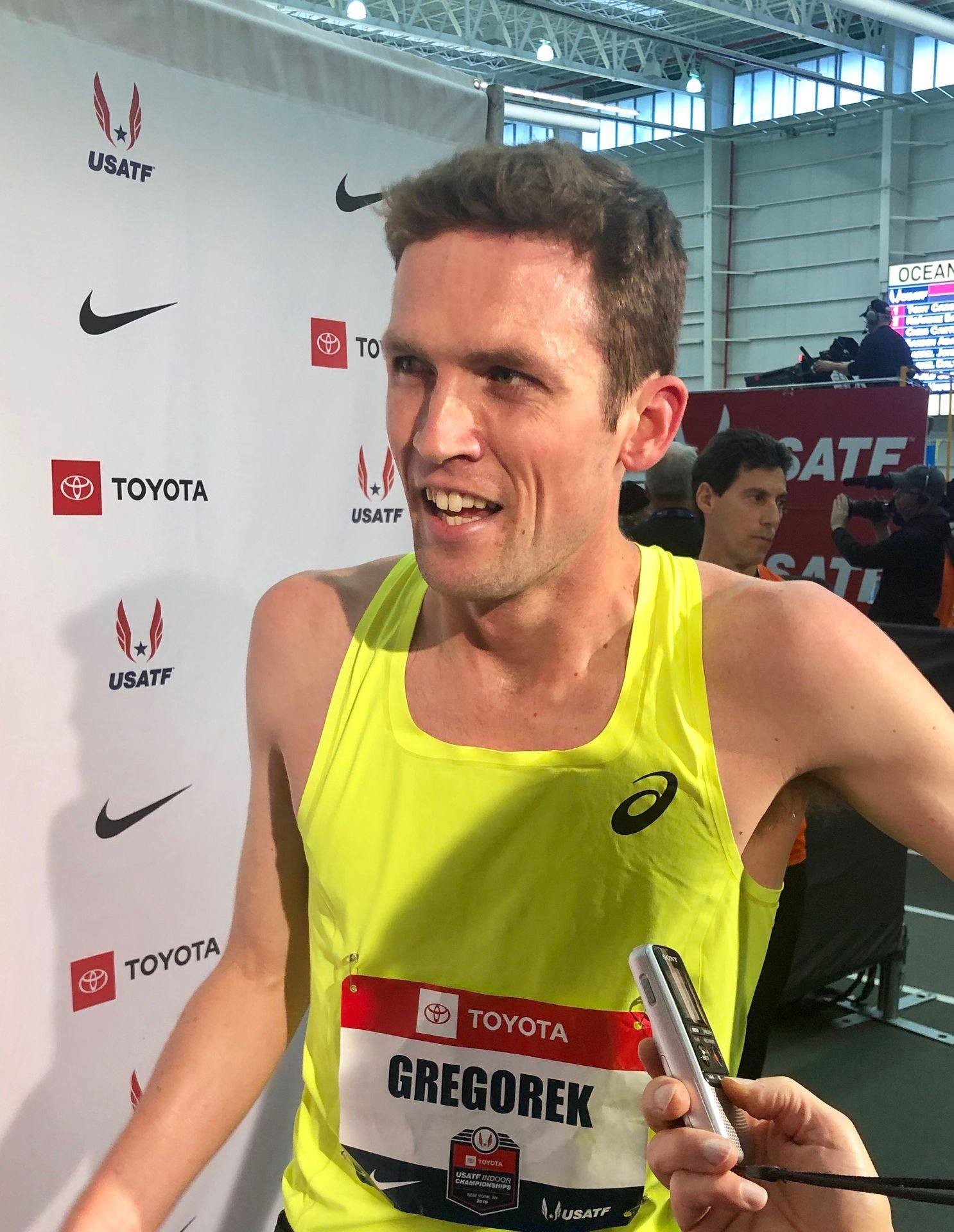
The twice world indoor 3,000 meters champion was also targeting the indoor 1,500m record but narrowly missed it with a 3:31.25.
This makes Kejelcha, who is coached by Alberto Salazar, the third-fastest in the 1500m behind compatriot Samuel Tefera's February world record of 3:31.04 and El Guerrouj's 3:31.18
Eariler in the week Oregon live reported, “As promised, Nike Oregon Project coach Alberto Salazar has declared the NOP’s Yomif Kejelcha will be running for a world indoor record in the 1,500 meters -- and, possibly, the mile -- in the Bruce Lehane Invitational Mile Sunday at Boston University.
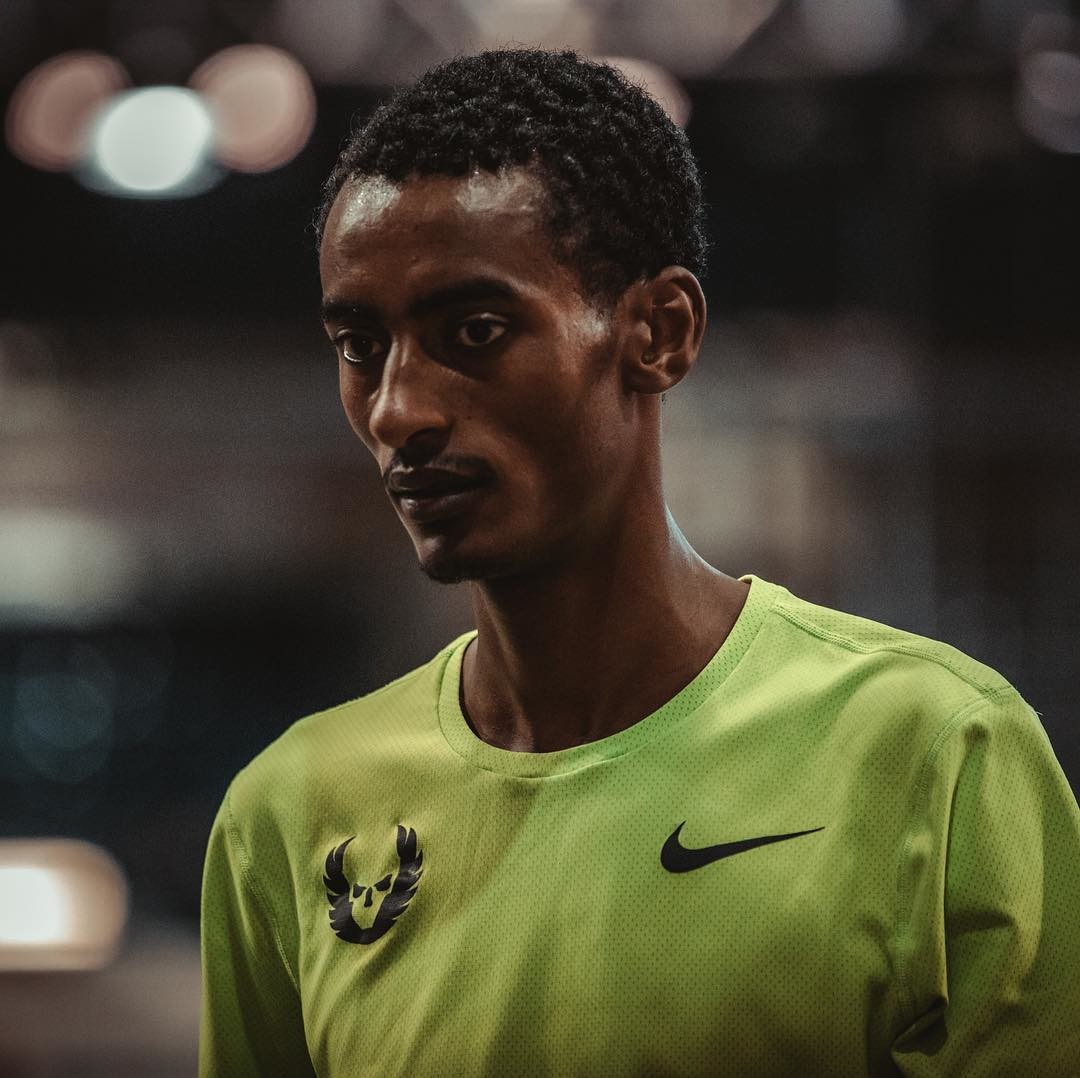
Salazar said making a world-record assault public puts pressure on the runner making the attempt, but also causes the runner to focus. And, he thinks, world-record attempts create the kind of publicity and attention the sport needs.
"If we’re going for a record in Boston, people are going to know," Salazar said then. “If we say we’re going for it, we’ll go for it.”
He told DyeStat’s Doug Binder on Wednesday that Kejeclha is fit and ready.
“He likes the 1,500 (meters), but I think the mile is more prestigious,” Salazar told Binder. “He’s going for the 1,500 record, and afterwards just hopes to maintain so he can get the mile as well.”
This is how the race in Boston unfolded as described by the IAAF.
Kejelcha followed three different pacemakers for the opening laps and passed through 809m in 1:52. Worried the pace wasn't quick enough, he moved past the final pacemaker about two minutes into the race and was then out in front alone.
He was inside 2:51 with two laps remaining and kept up his swift pace for the last 400 metres. The clock had already ticked over to 3:31 by the time he passed the 1500m checkpoint, but he – and the eager fans – would have to wait until after the race to find out his official split. His immediate concern was reaching the finish line of the mile.
Kejelcha dug in deep and crossed the line in 3:47.01, taking 1.44 seconds off the previous world indoor record set by Hicham El Guerrouj in 1997. Moments later, his 1500m split was confirmed at 3:31.25, making him the third-fastest indoor performer in history behind Tefera and El Guerrouj.
Kejelcha's mile time is also an outright Ethiopian record, bettering the outdoor mark of 3:48.60 set by Aman Wote.
America's Johnny Gregorek (second photo) finished second in 3:49.98, moving to sixth on the world indoor all-time list, just 0.09 shy of Bernard Lagat's North American indoor record. This is the seventh best time by an American Indoor or outdoors according to LetsRun.
Login to leave a comment
Jakob Ingebrigtsen defeats the new 1500m world Record holder Samuel Tefera
Norway’s Jakob Ingebrigtsen defeated new world record-holder Samuel Tefera in the 1,500m at the IAAF World Indoor Tour in Dusseldorf today, running 3:36.02 to Tefera’s 3:36.34. Filip Ingebrigtsen, the middle brother finished in third place, in 3:38.62. Jakob’s time represents a new personal best and a new U20 indoor world record, as well as a Norwegian national record.
Jakob Ingebrigtsen showed his ‘majority’ to pounce at the perfect time and take the win down the home straight at the International PSD Bank Meeting Dusseldorf.
After breaking the world indoor mile record in Birmingham on Saturday, it was no surprise to see Ethiopia’s teenage star Samuel Tefera at the front behind the pacers in the early laps around the 200m track in the German city.
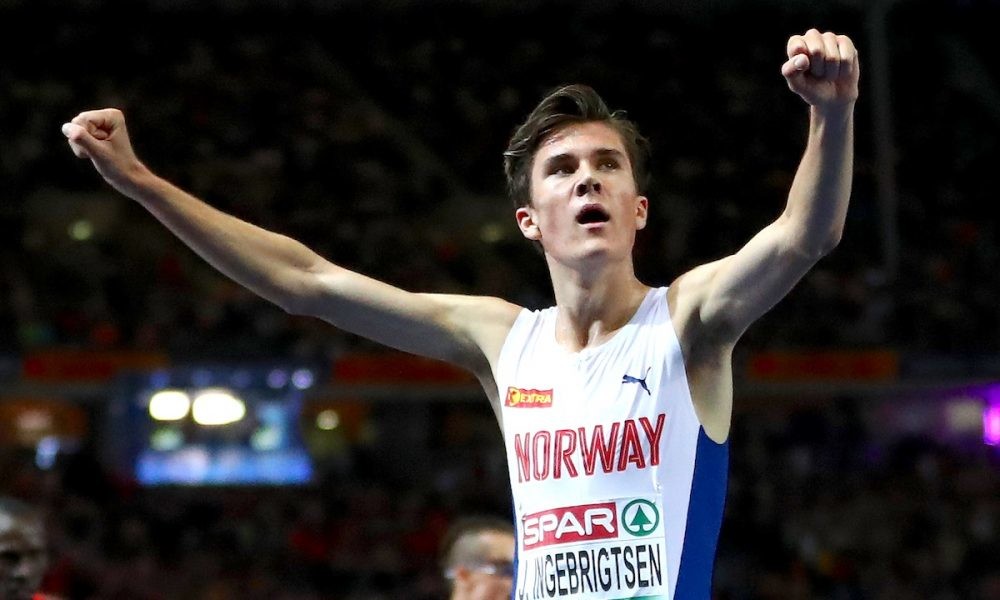
Once the final pacemaker stepped off the track, Tefera was at the forefront, but European 1500m and 5000m champion Ingebrigtsen was quick to close the gap to ensure the final leg of the IAAF World Indoor Tour had an exciting finish.
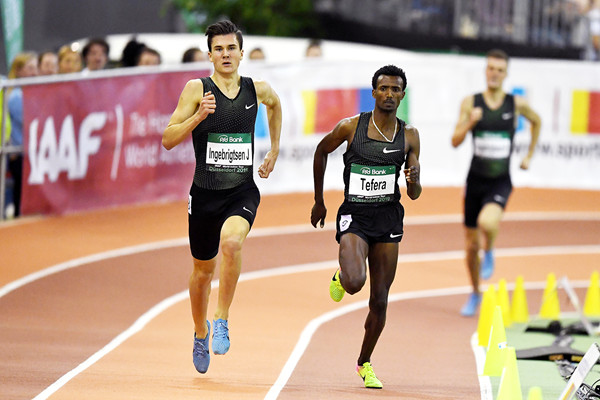
As the two teenage stars came around the final bend in Dusseldorf, Ingebrigtsen moved out to the second lane, and powered home with strength beyond his years, to take to win in 3:36.02, with Tefera clocking 3:36.34.
Ingebrigtsen’s victory set a new indoor under-20 world record and broke the Norwegian indoor best.
Even though Tefera ran 3:31.04 last week, the time isn’t an under-20 record because his 20th birthday is later this year.
Login to leave a comment
Samuel Tefera faces Norway’s brothers at Düsseldorf Indoor meet
Nine of this season's 11 IAAF World Indoor Tour titles will be up for grabs when the six-meeting series concludes with the PSD Bank Meeting in Dusseldorf on Wednesday (20) night, but none will be as eagerly anticipated and as closely watched as the battle for the men's 1500m when Samuel Tefera returns to the track just four days after his sensational world record-breaking run in Birmingham.
The Ethiopian teenager shocked the world when he prevailed in a tactical race to win the world indoor title one year ago, but when he returned to the same Arena Birmingham track last Saturday, few expected the 19-year-old to take down a record set in 1997 - more than two years before he was born - by the all-time great Hicham El Guerrouj. But he did, clocking 3:31.04 to clip 0.14 from the Moroccan’s mark with a convincing victory over pre-meet favourite Yomif Kejelcha.
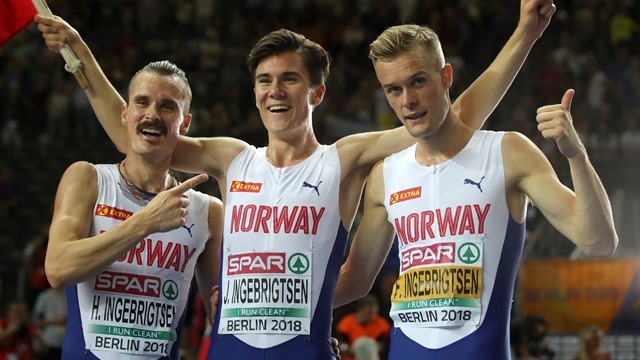
Here in Dusseldorf, Tefera will be running for another fast time as well as series honours. He trails Kenyan Bethwell Birgen by one point in the standings with 23; so long as he finishes ahead of the Kenyan, he'll take home the US$20,000 prize bonus and a wildcard entry for the IAAF World Indoor Championships Nanjing 2020.
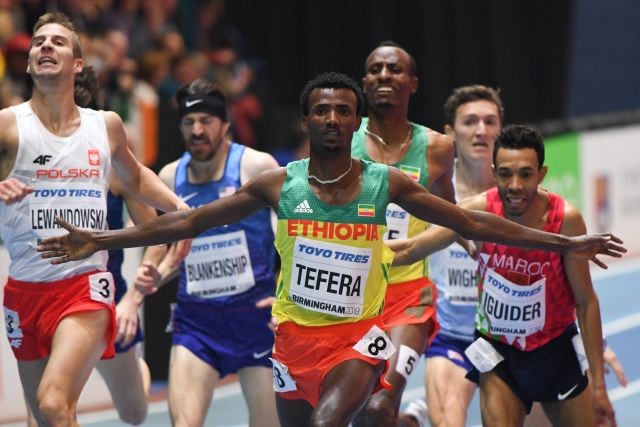
The field also includes all three of Norway's Ingebrigtsen brothers, Filip, Hendrik and Jakob, setting up an intriguing head-to-head with the latter, another teenager, who famously cruised to the European 1500 and 5000m titles last August.
The 18-year-old has raced once this season, clocking a 3:36.21 national record eight days ago. Given the largely solo nature of that run, it's clear he can run faster.
by from IAAF
Login to leave a comment
Samuel Tefera breaks long standing world indoor 1500m Record in Birmingham, Yomif was second
Samuel Tefera from Ethiopia upstaged compatriot Yomif Kejelcha to break the indoor 1500m record at the IAAF World Indoor Tour meeting in Birmingham England on Saturday Feb 16. The record has stood for over twenty years.
Kejelcha, who last week came within 0.01 of the world indoor mile record, had announced his intentions to break the 1500m mark ahead of his race in Birmingham. The pacemakers hit their required target times, taking Kejelcha through 800m in 1:52.70 and 2:49.28 at 1200m.
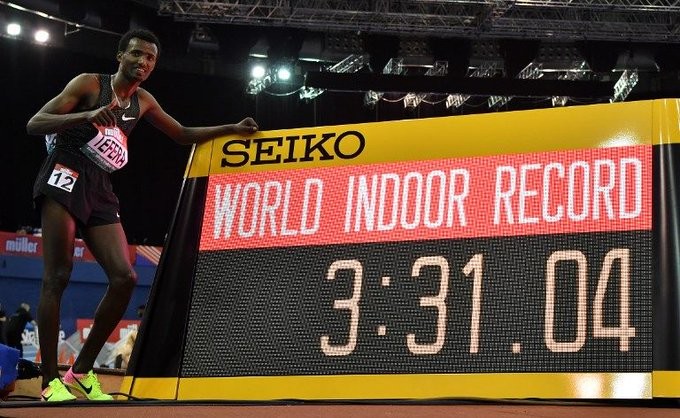
But Tefera, the world indoor champion at the distance, was tucked right behind Kejelcha and looked ominously comfortable with the pace. The clock ticked through 3:03 as the bell sounded for the final lap and Tefera made his move, kicking past Kejelcha to take the lead.
Tefera charged towards the line and stopped the clock at 3:31.04, taking 0.14 off the previous record set by Hicham El Guerrouj in 1997.
Kejelcha finished second in a personal best of 3:31.58.
Top photo by Mark Shearman
Login to leave a comment
Muller Indoor Grand Prix Birmingham
The Müller Indoor Grand Prix Birmingham is one of the leading indoor meetings in the world with world-class athletics as part of the World Indoor Tour Gold series. The event will be staged at its traditional home at Utilita Arena Birmingham setting the tone for what is set to be an incredible year of track & field. ...
more...Laura Muir is set for the Muller Indoor Grand Prix Birmingham as well as more than 50 global medallists on Saturday
Britain’s Laura Muir will compete in the women’s mile with an eye on Kirsty Wade’s 31-year-old British record of 4:23.86. Following her victory at the SPAR British Athletics Indoor Championships over 3000m and her Scottish indoor record over 800m in Torun, Muir’s race will be one of the highlights of the meet.
Ethiopia’s Yomif Kejelcha’s next race on the track will be greatly anticipated as he will run the 1500m with Hicham El Guerrouj’s 22-year world indoor 1500m record of 3:31.18 under threat.
Among the Olympic champions in action are Rio 2016 double gold medallist Elaine Thompson and Katerina Stefanidi who will feature in highly competitive women’s 60m and women’s pole vault fields respectively.
Furthermore, five 2018 world indoor champions return to the venue including Ethiopia’s Samuel Tefera over 1500m, in addition to Kejelcha and Stefanidi, and men’s and women’s long jump champions Juan Miguel Echevarria of Cuba and Serbia’s Ivana Spanovic.

World number two in 2019 following his 6.53 clocking in Berlin two weeks ago, Reece Prescod goes in the men’s 60m, taking on world indoor silver medallist Su Bingtian of China. Newly-crowned British champion Dominic Ashwell and second-place Adam Thomas will have a last chance to chase European Indoor championship qualifying times.
Login to leave a comment
Muller Indoor Grand Prix Birmingham
The Müller Indoor Grand Prix Birmingham is one of the leading indoor meetings in the world with world-class athletics as part of the World Indoor Tour Gold series. The event will be staged at its traditional home at Utilita Arena Birmingham setting the tone for what is set to be an incredible year of track & field. ...
more...Yomif Kejelcha going after 1500m World Record at the Muller Indoor Grand Prix Birmingham
The two-time world indoor 3000m champion won the mile at the recent Millrose Games in 3:48.46, just 0.01 outside Hicham El Guerrouj’s world indoor record set in 1997, six months before Kejelcha was born.
The Ethiopian will be targeting another one of El Guerrouj’s marks in Birmingham: the world indoor 1500m record of 3:31.18. El Guerrouj recorded that time just 10 days before his world indoor mile record, so given that Kejelcha is in near identical form as the Moroccan during his record-breaking run in 1997, the 21-year-old stands a good chance of taking down the mark in the shorter distance.
There will be tough opposition, too, including the three other men who have won 1500m races in this year’s World Indoor Tour: Torun winner and world indoor champion Samuel Tefera, Madrid winner Bethwel Birgen, and Karlsruhe winner Vincent Kibet.
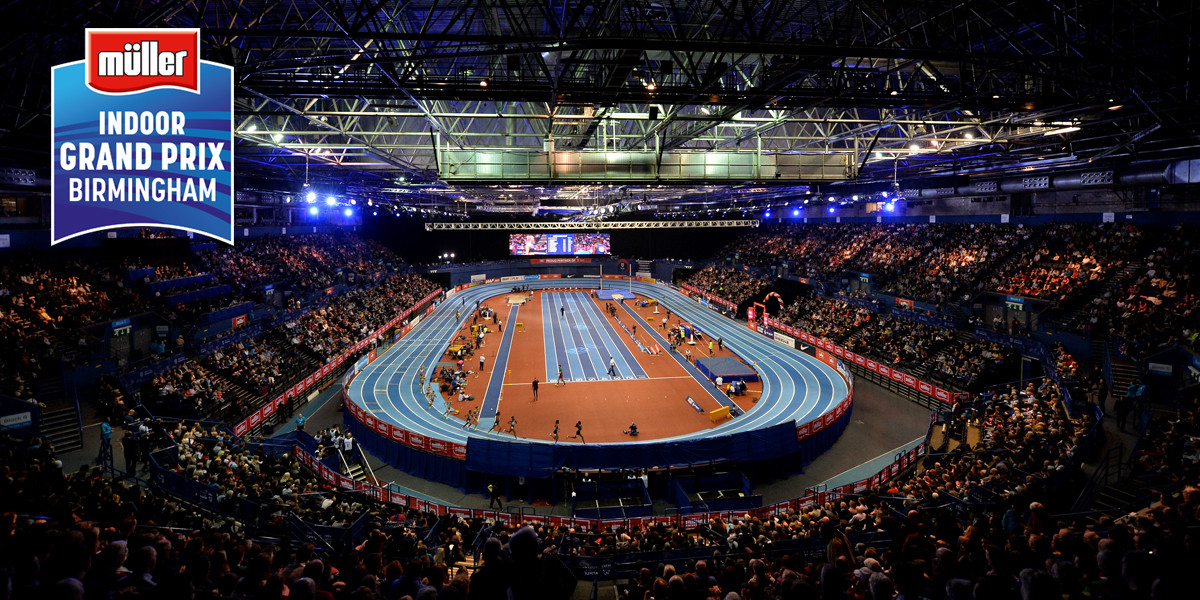
One week after coming within a whisker of the world indoor mile record, Yomif Kejelcha will be one of the biggest focal points of the Muller Indoor Grand Prix Birmingham when he lines up for the 1500m at the penultimate IAAF World Indoor Tour meeting of 2019 on Saturday
Login to leave a comment
Muller Indoor Grand Prix Birmingham
The Müller Indoor Grand Prix Birmingham is one of the leading indoor meetings in the world with world-class athletics as part of the World Indoor Tour Gold series. The event will be staged at its traditional home at Utilita Arena Birmingham setting the tone for what is set to be an incredible year of track & field. ...
more...Jakob Ingebrigtsen broke the world U20 indoor 1500m record, clocking 3:36.21 at the Nordenkampen Indoor Match in Baerum, Norway
Jakob Ingebrigtsen closed his 2018 season by creating history with an unprecedented third successive U20 title at the SPAR European Cross Country Championships in Tilburg and he opened his 2019 account with yet another record-breaking performance.
Fresh from a month-long training stint at altitude in Dullstroom in South Africa, Ingebrigtsen won maximum points for Norway at the Nordenkampen on home soil in Baerum on Sunday (Feb 10), comfortably winning the 1500m in 3:36.21 against Sweden, Finland and a combined team from Denmark and Iceland.
Not only was his time a European lead with the Glasgow 2019 European Indoor Athletics Championships three weeks away, Ingebrigtsen also smashed his European indoor U20 record of 3:40.96 and older brother Henrik’s four year old national indoor record of 3:39.70.
Jakob’s time was also the second fastest ever by a junior indoors after world indoor champion Samuel Tefera from Ethiopia clocked 3:36.05 last year. This time could be a target for Jakob when he lines up at the PSD Bank Meeting in Dusseldorf on February 20.
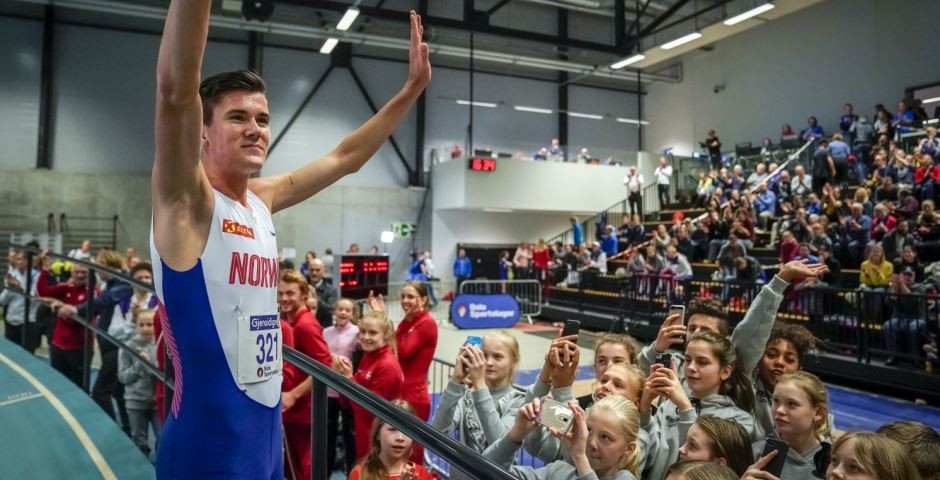
Filip Ingebrigtsen was also in action yesterday and the recently crowned European cross country champion won the men’s 3000m in 7:49.73. All three Ingebrigtsens are targeting the European Indoor Championships but their racing schedules still haven’t been finalised.
There was another national record in the women’s 3000m as Karoline Bjerkeli Grovdal broke one of the longest standing marks on the books. Grovdal clocked a solo 8:44.68 to better Ingrid Kristiansen’s previous mark of 8:50.26 which had stood since 1985 - the year in which Kristiansen also set a world marathon record of 2:21:06.
Login to leave a comment
Tefera breaks world U20 indoor 1500M Record
Login to leave a comment


